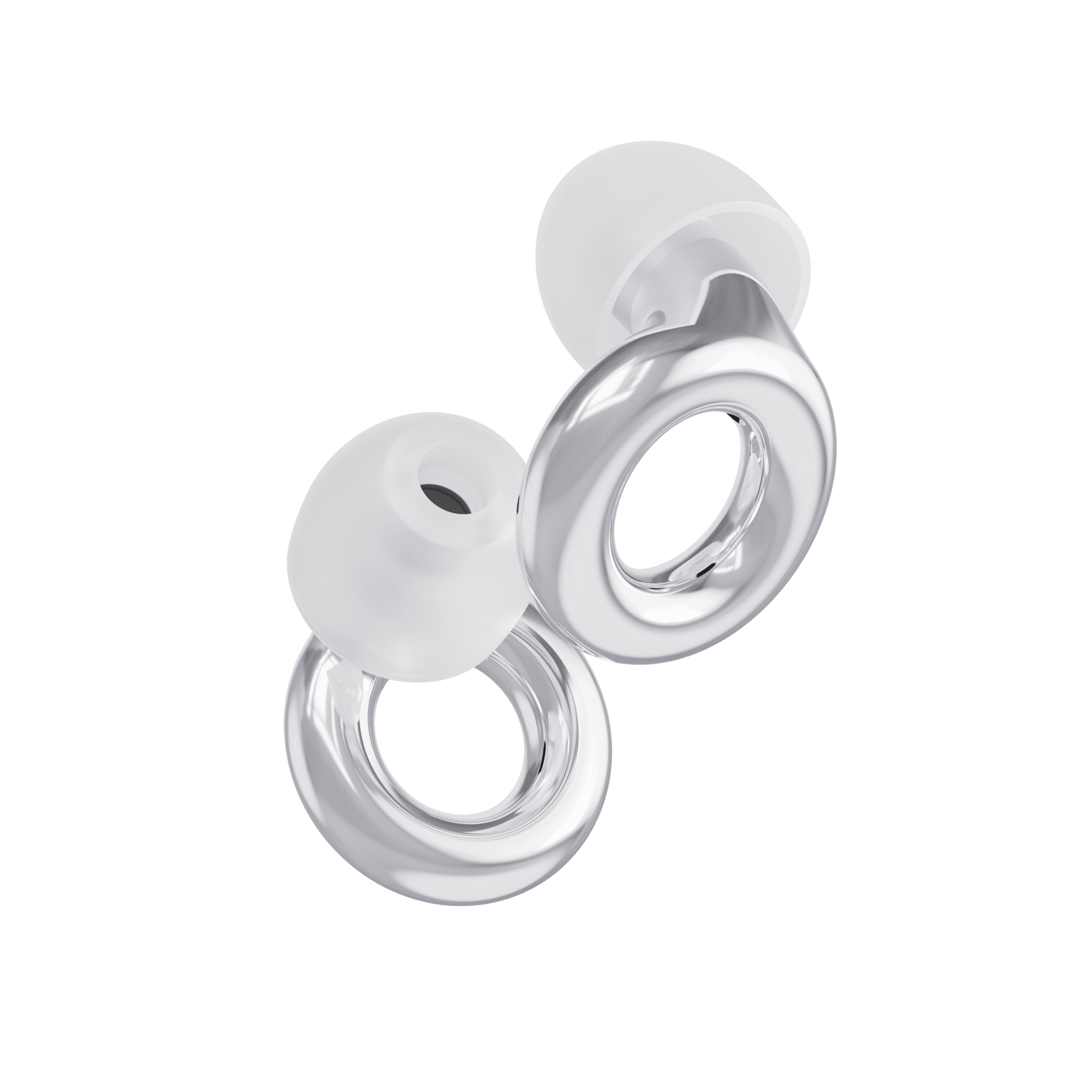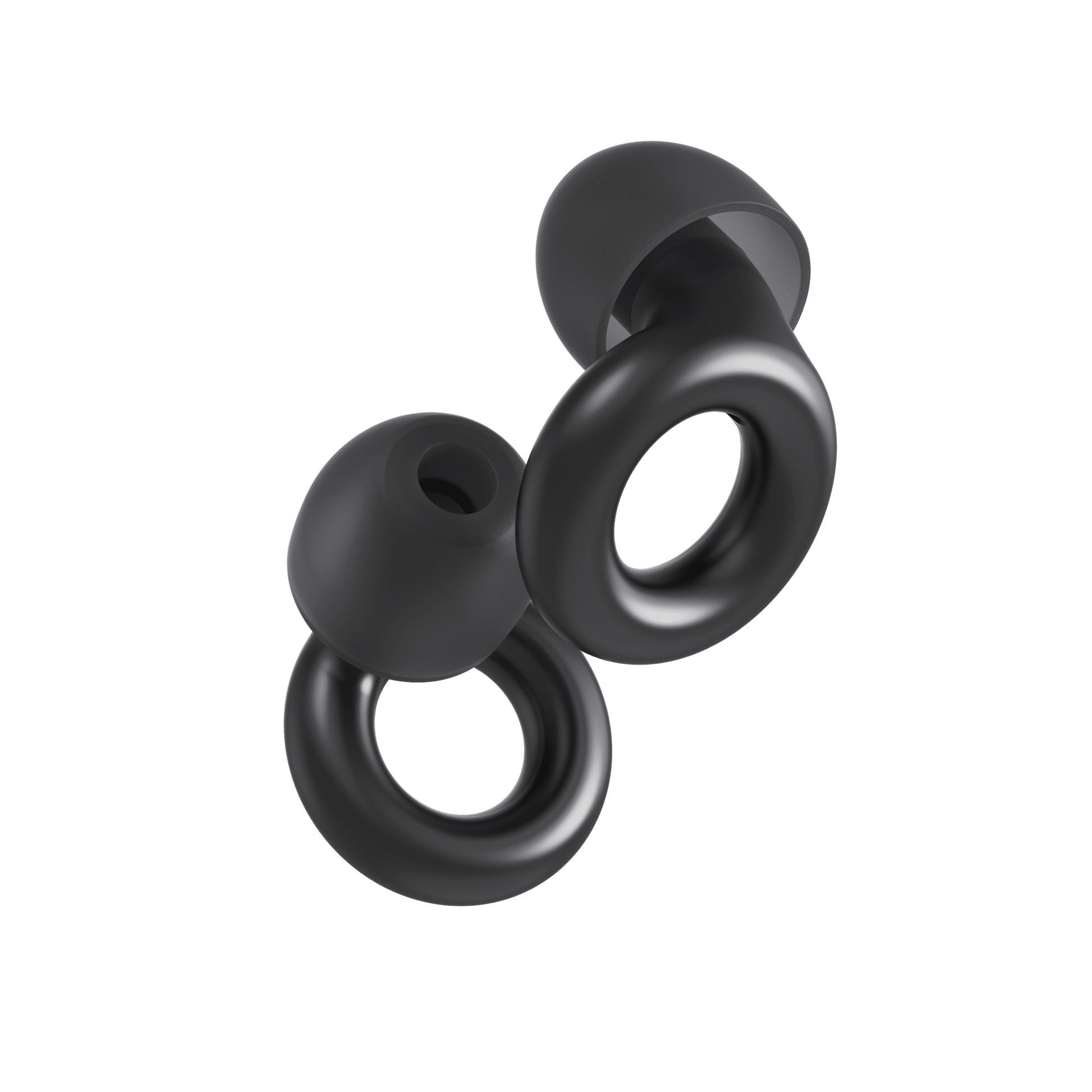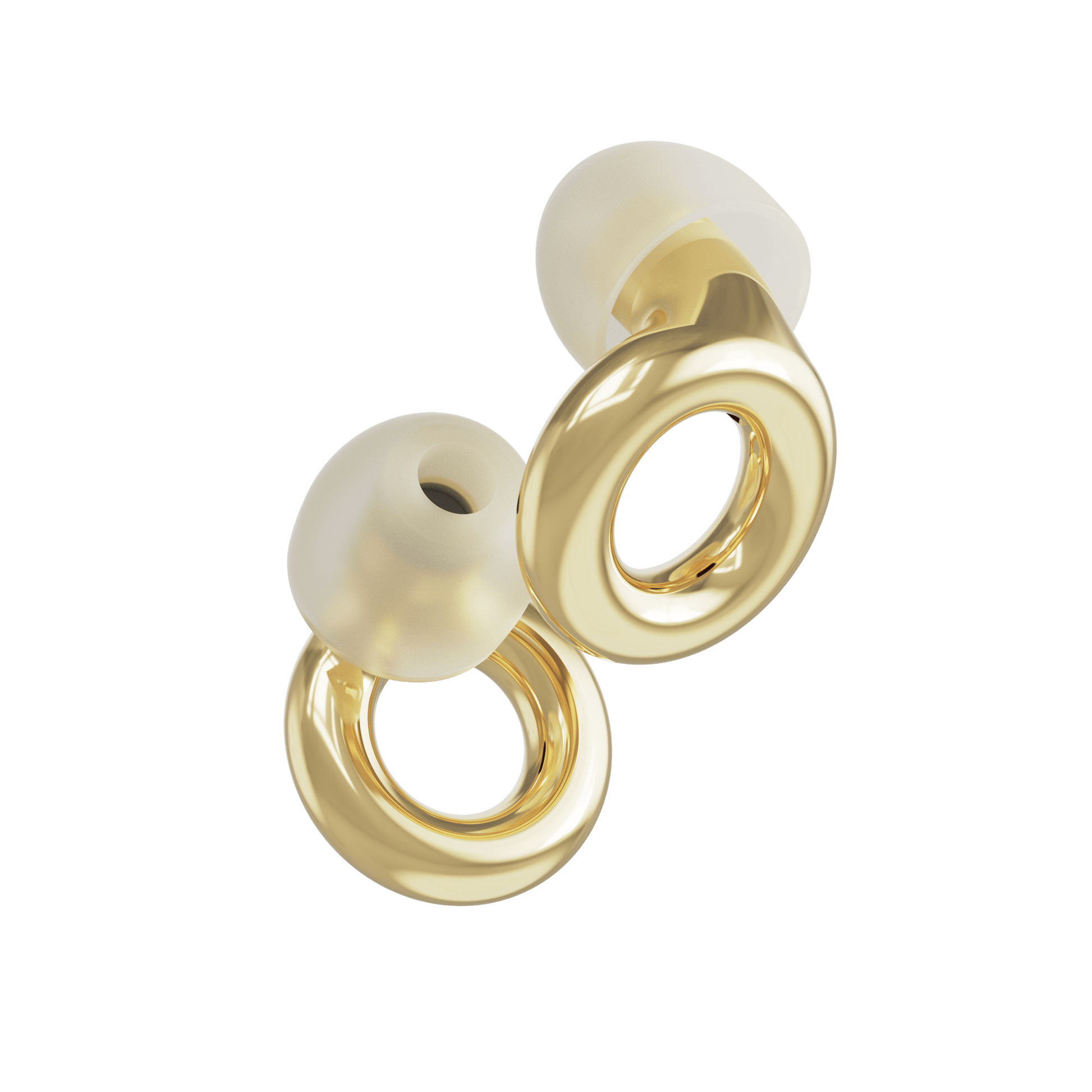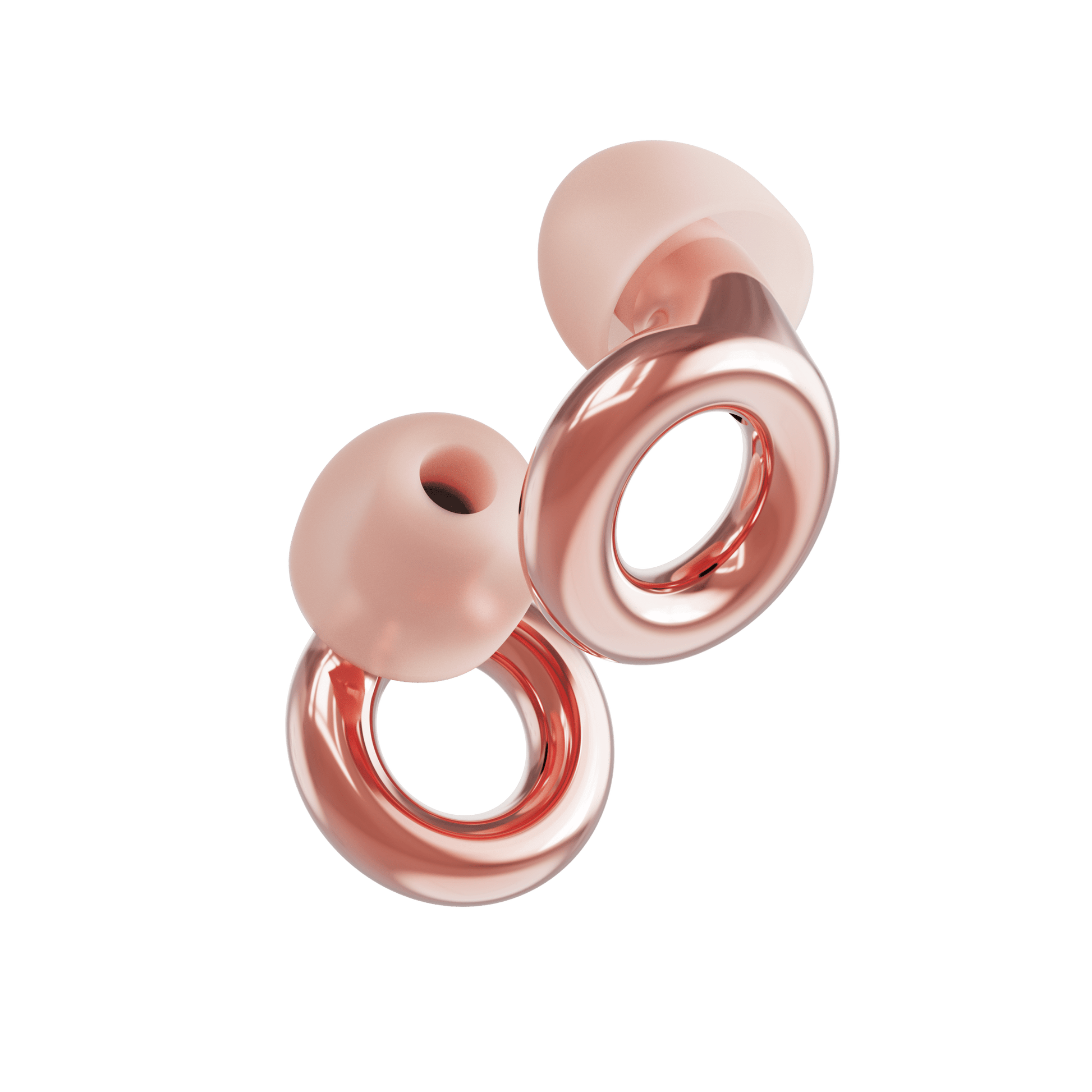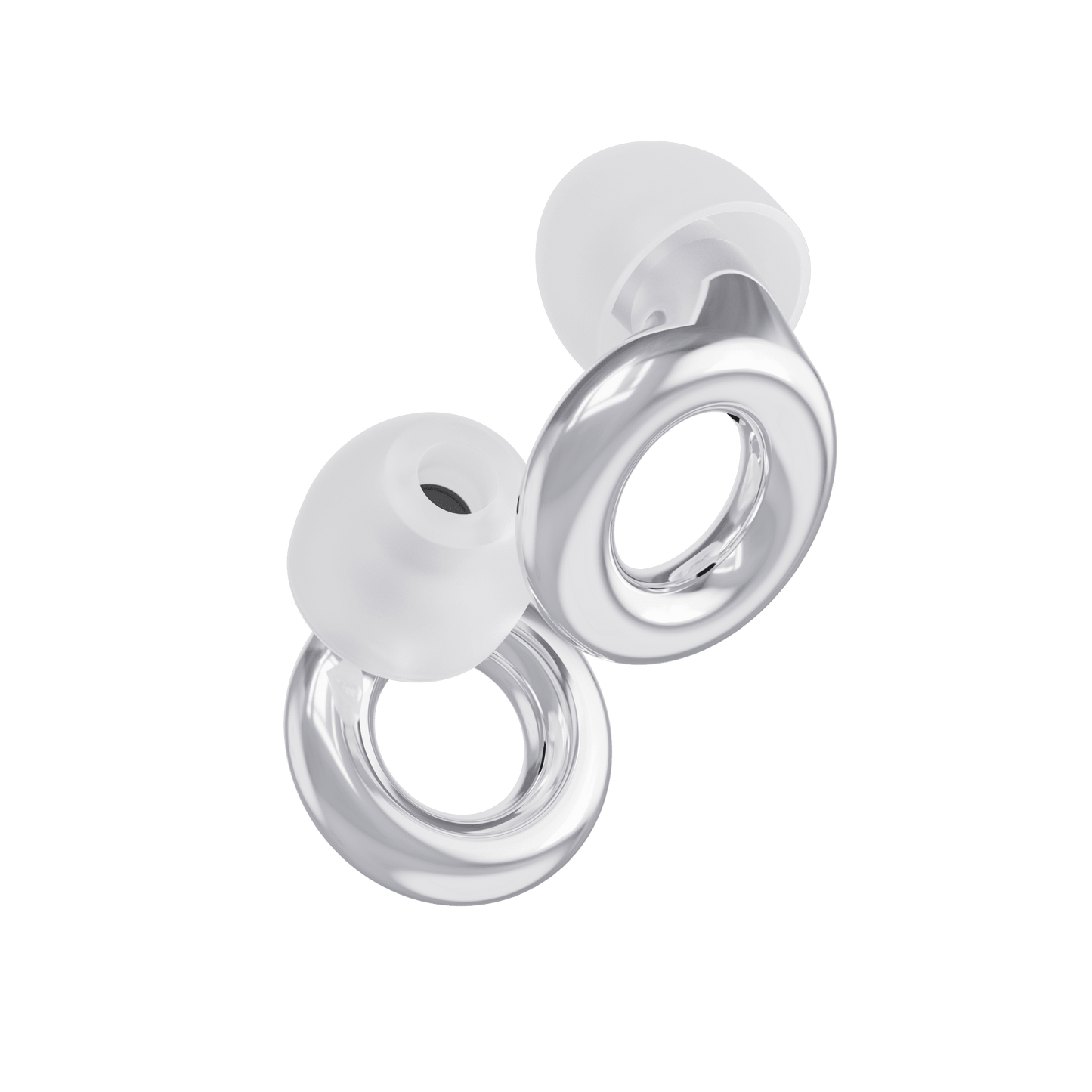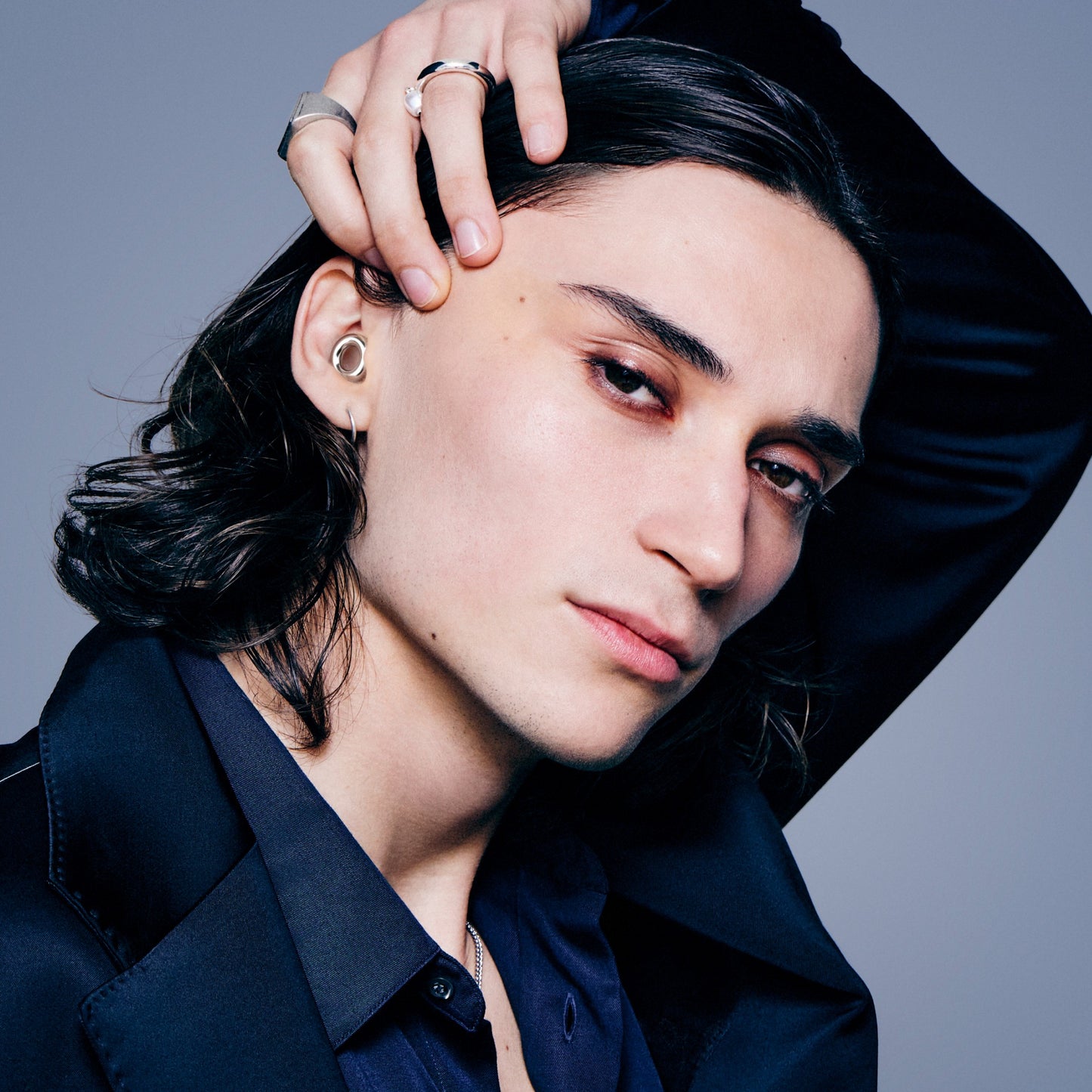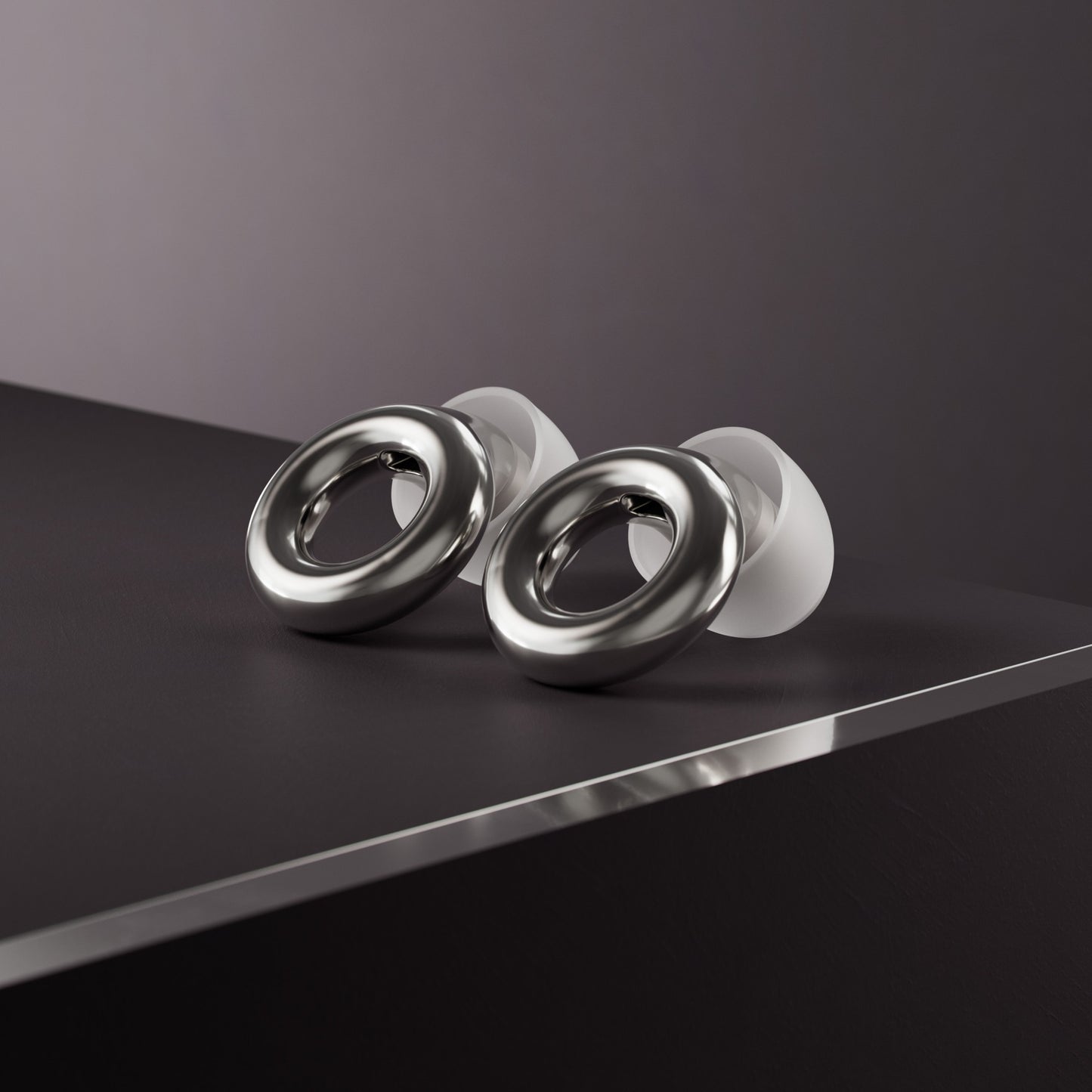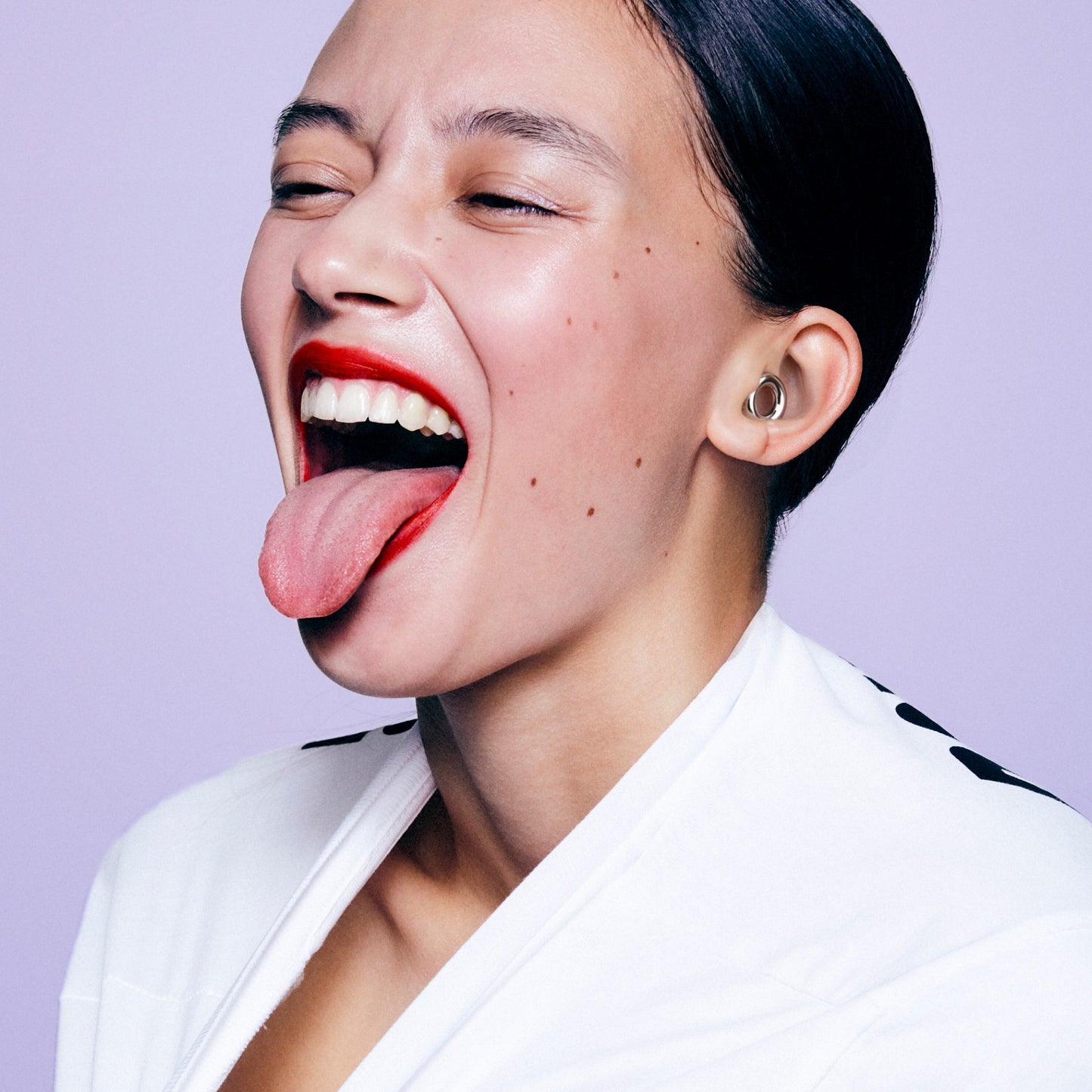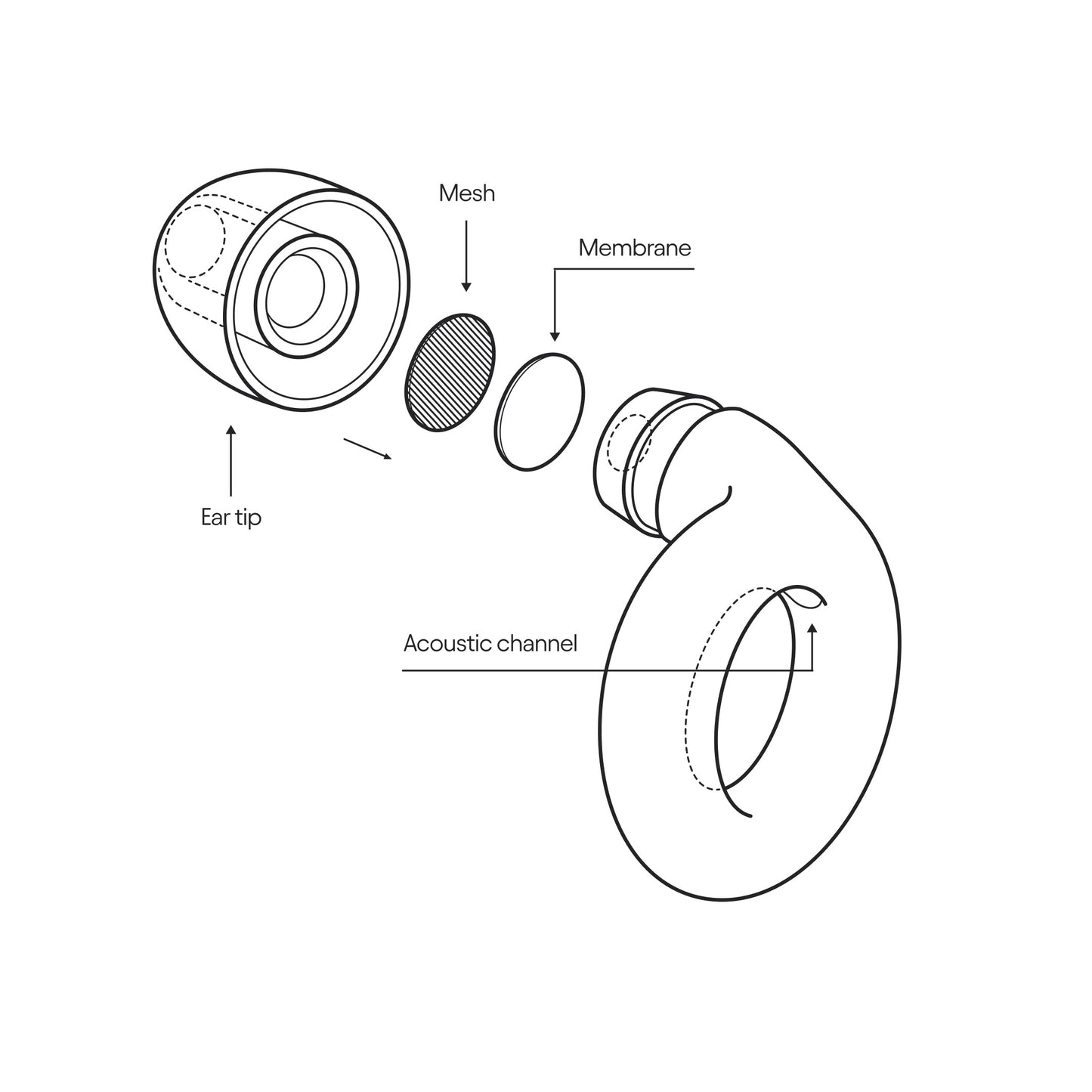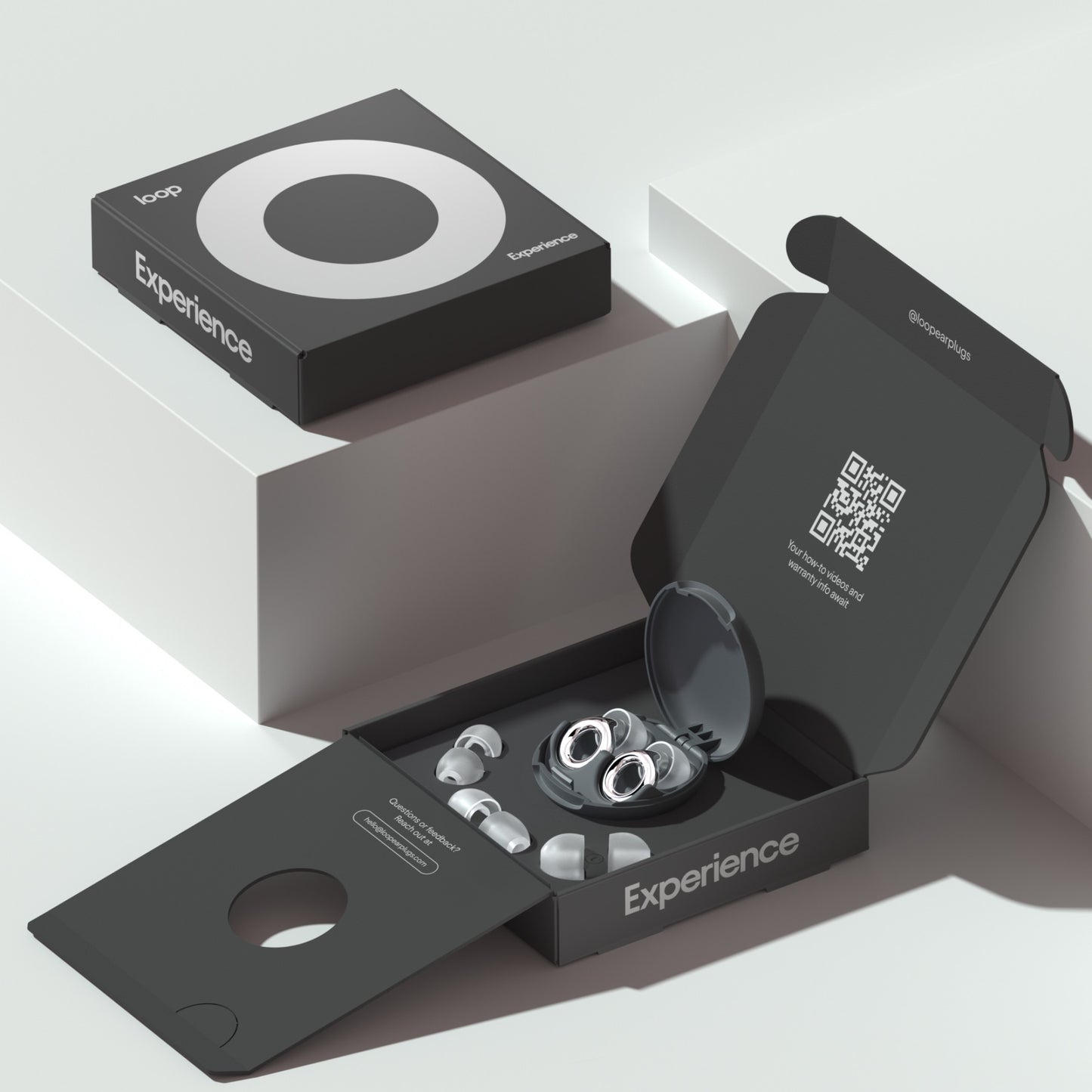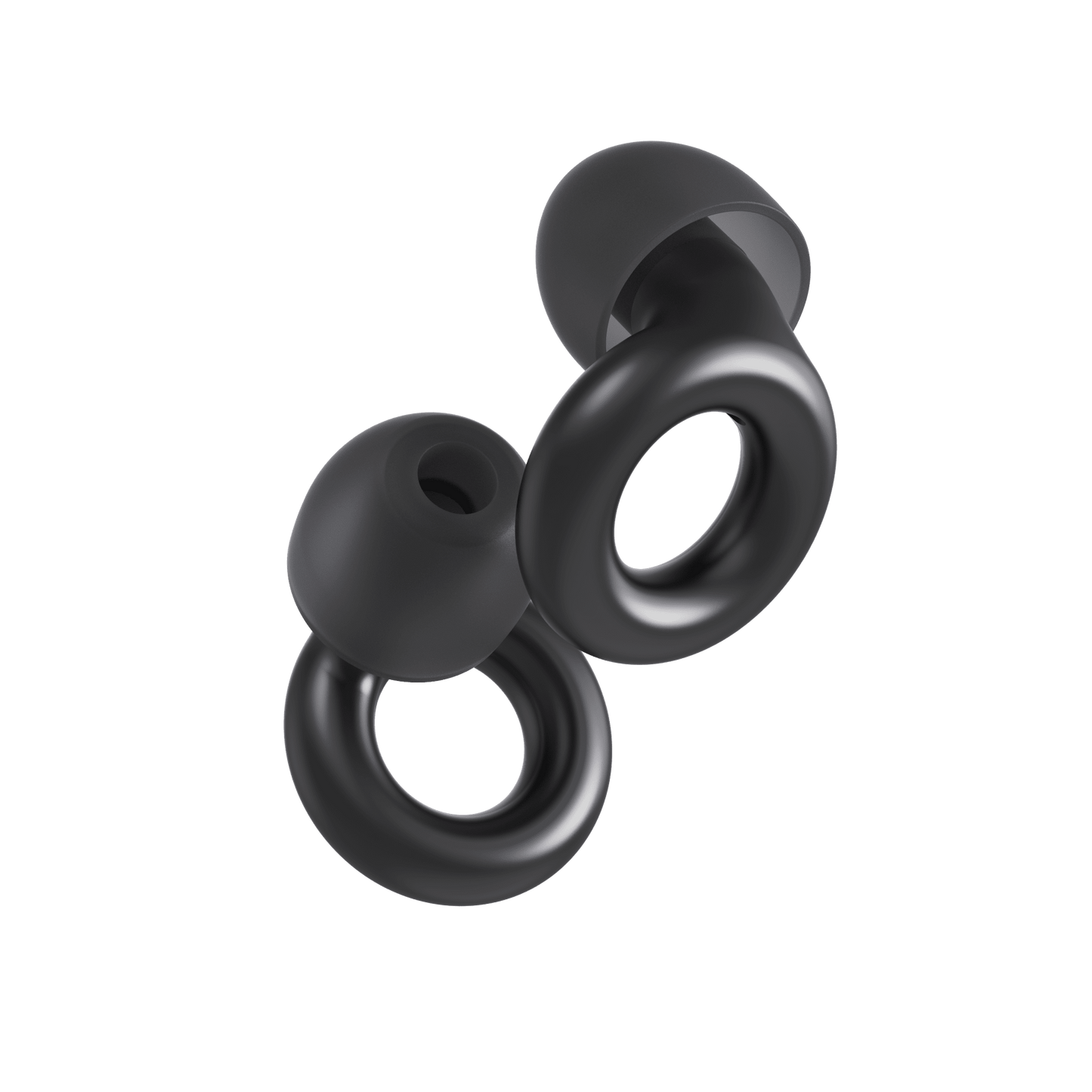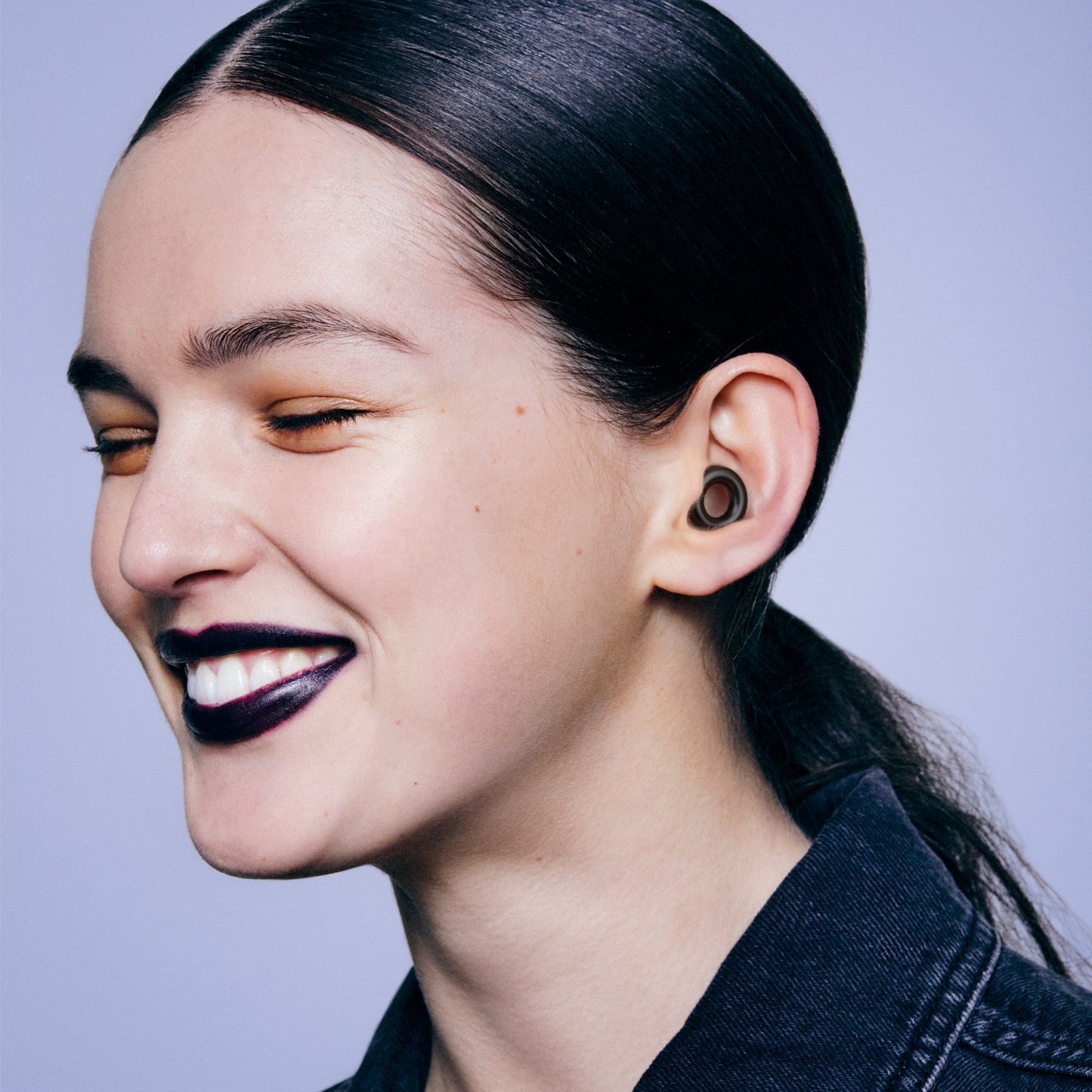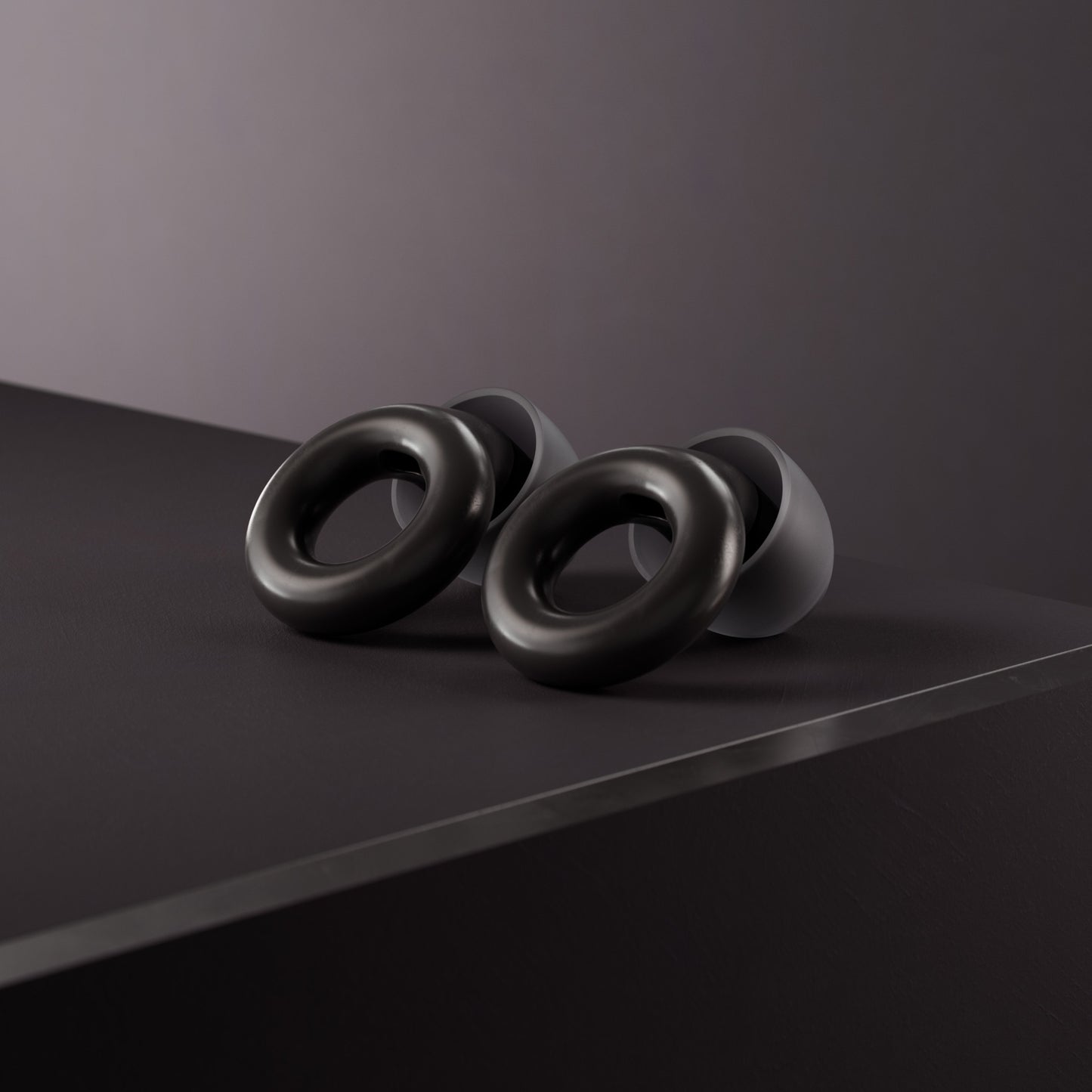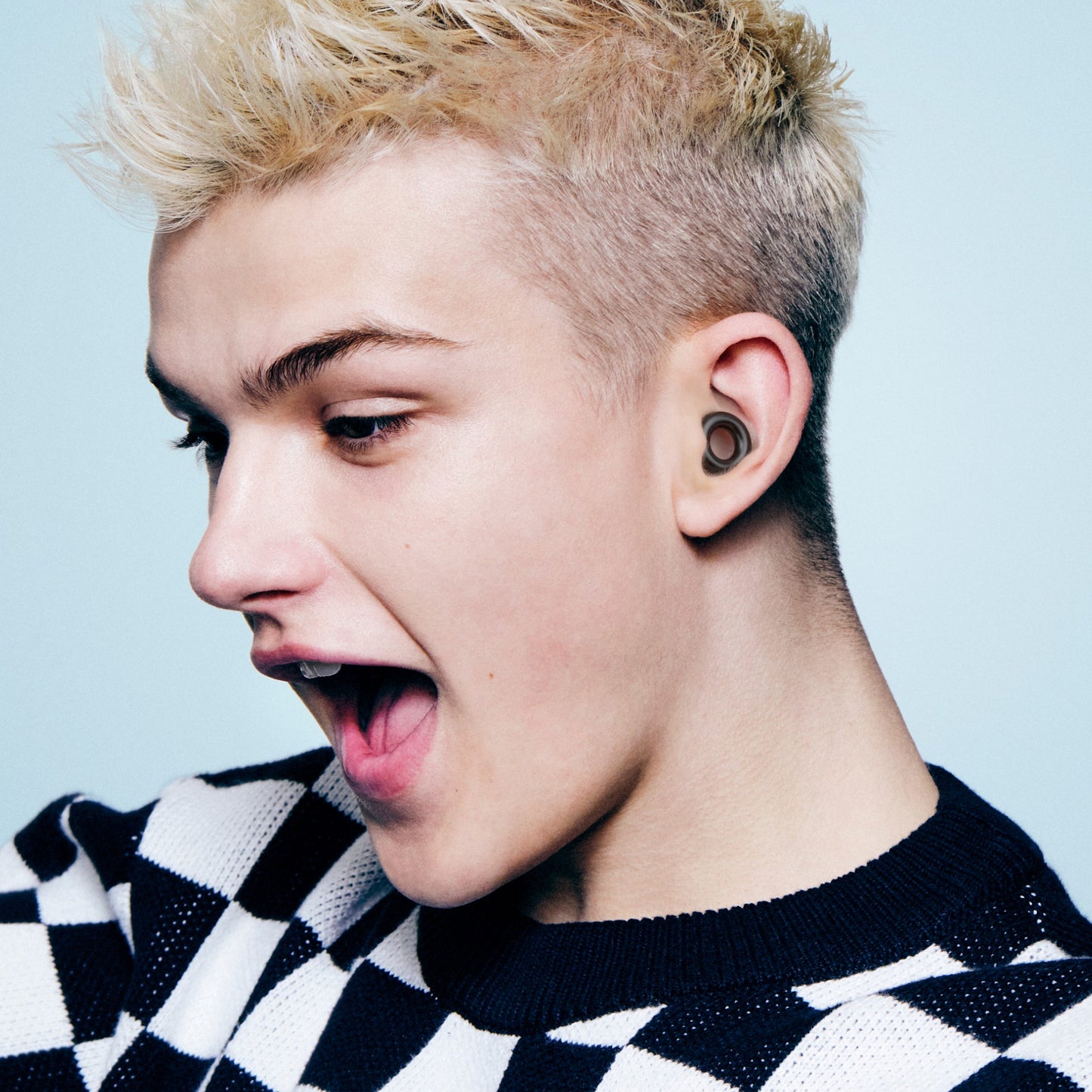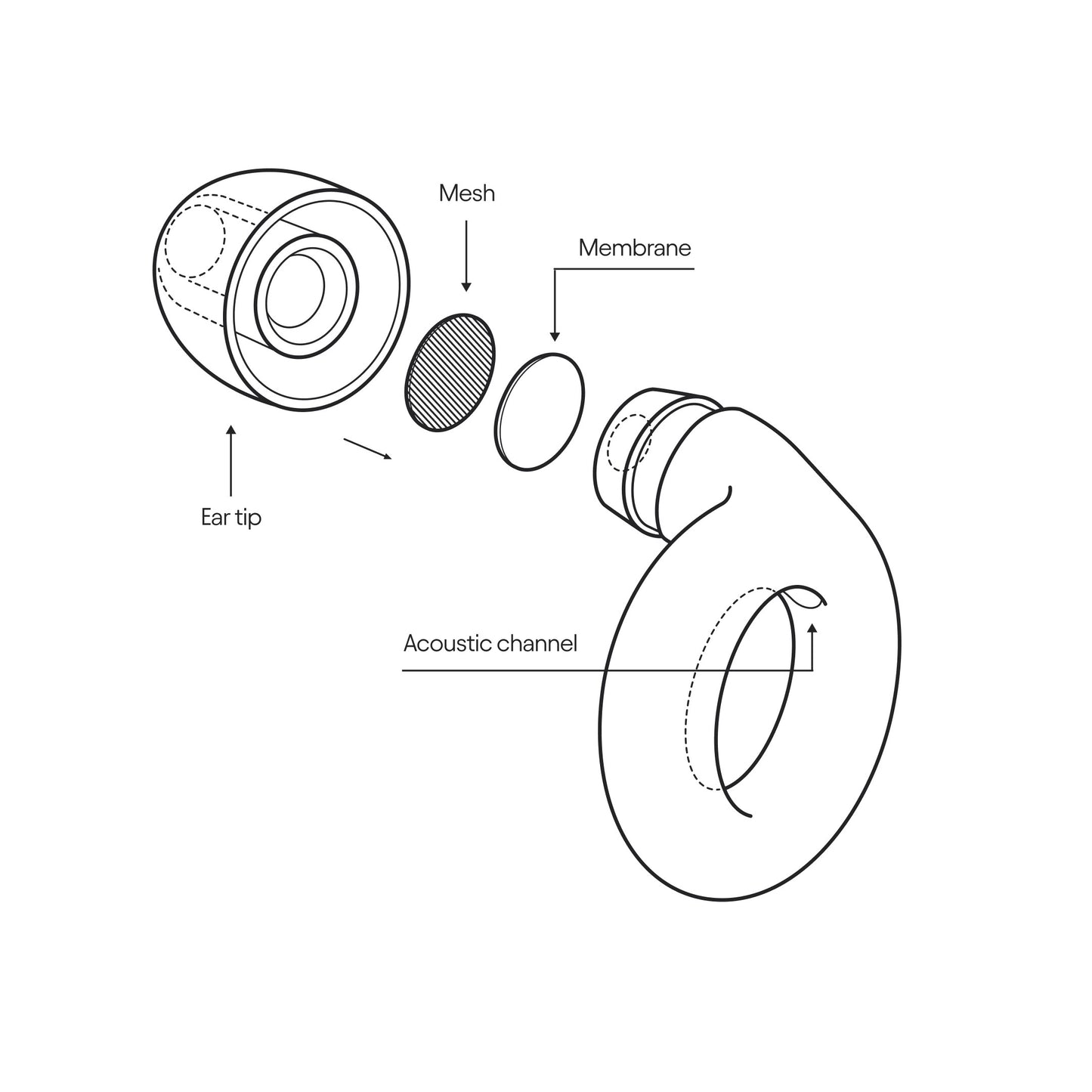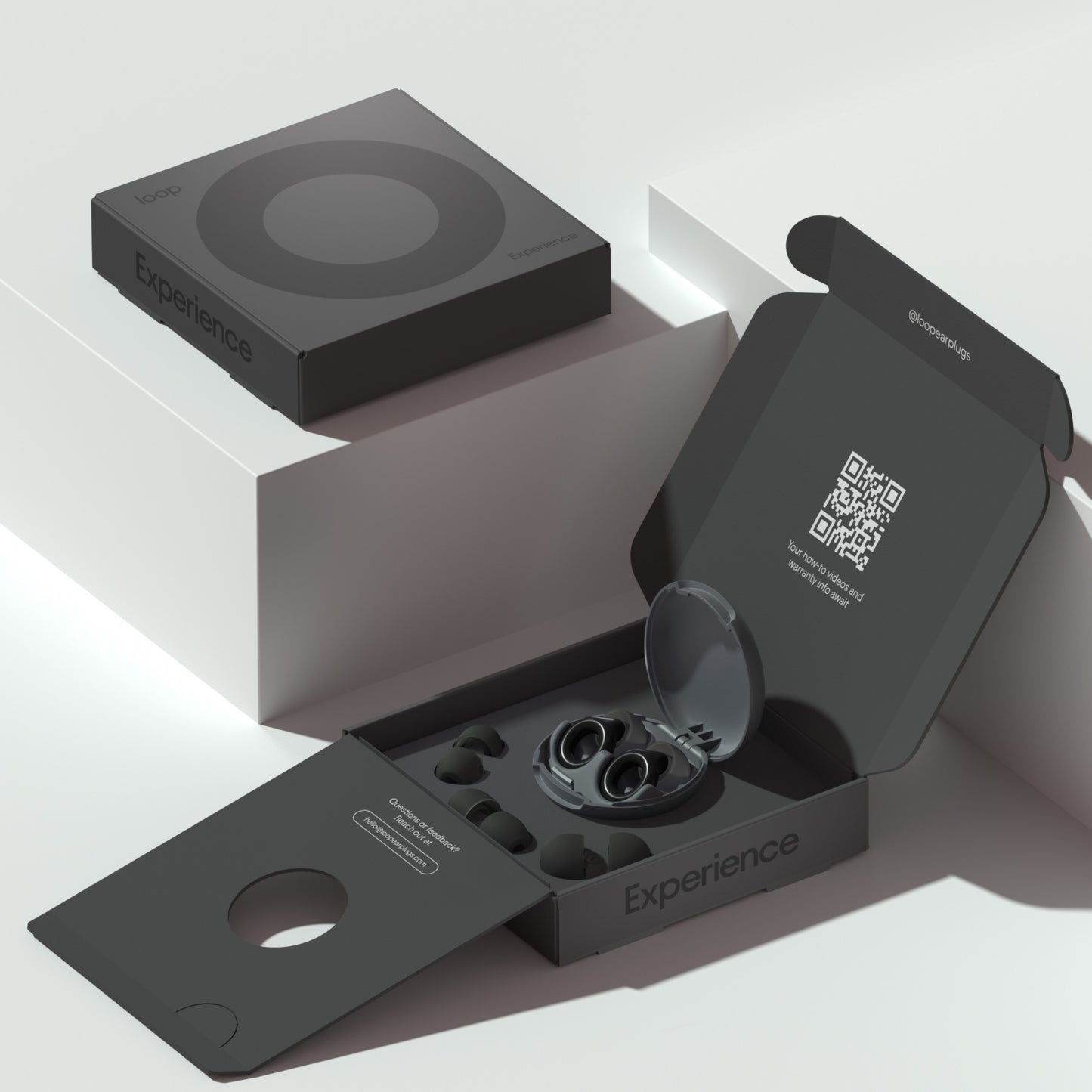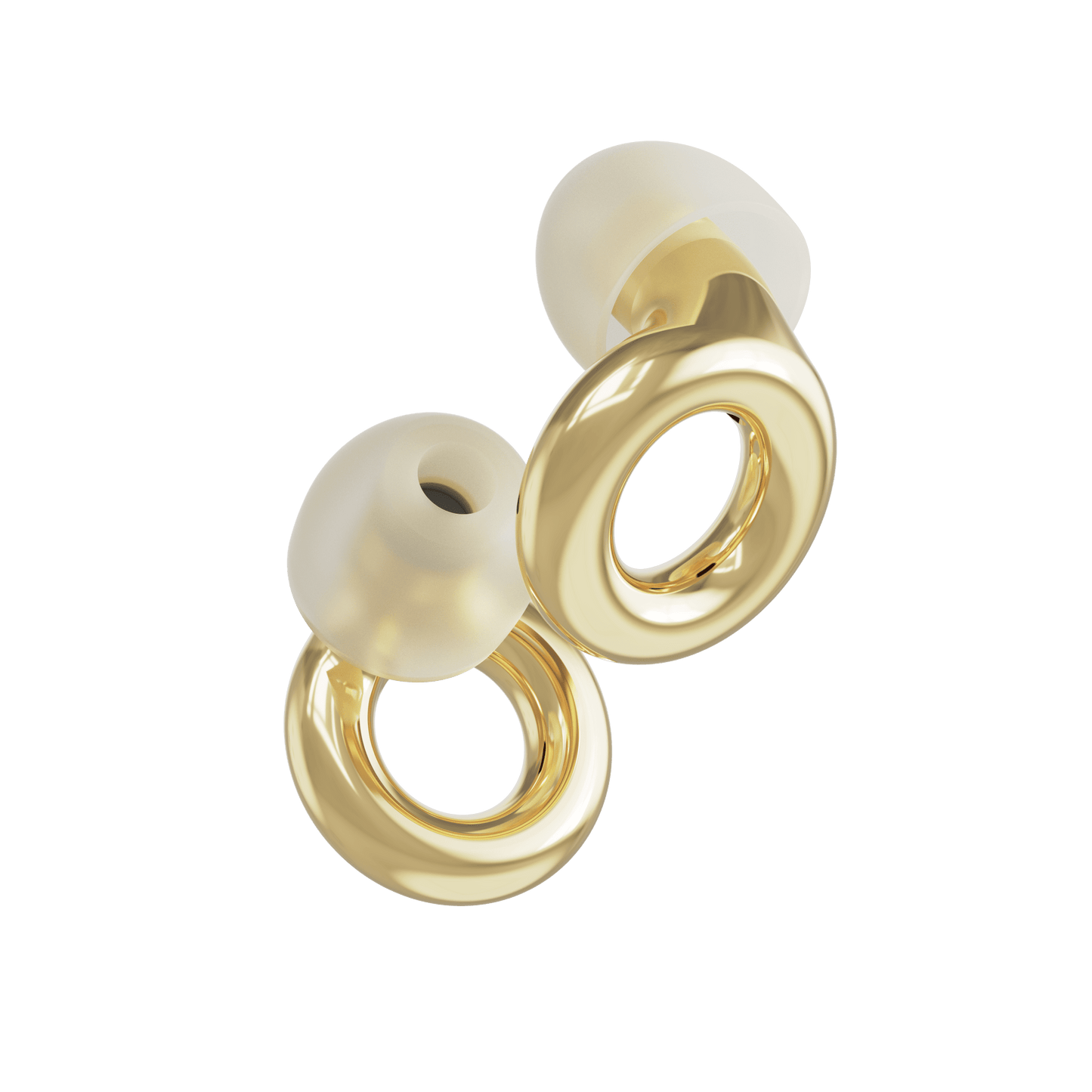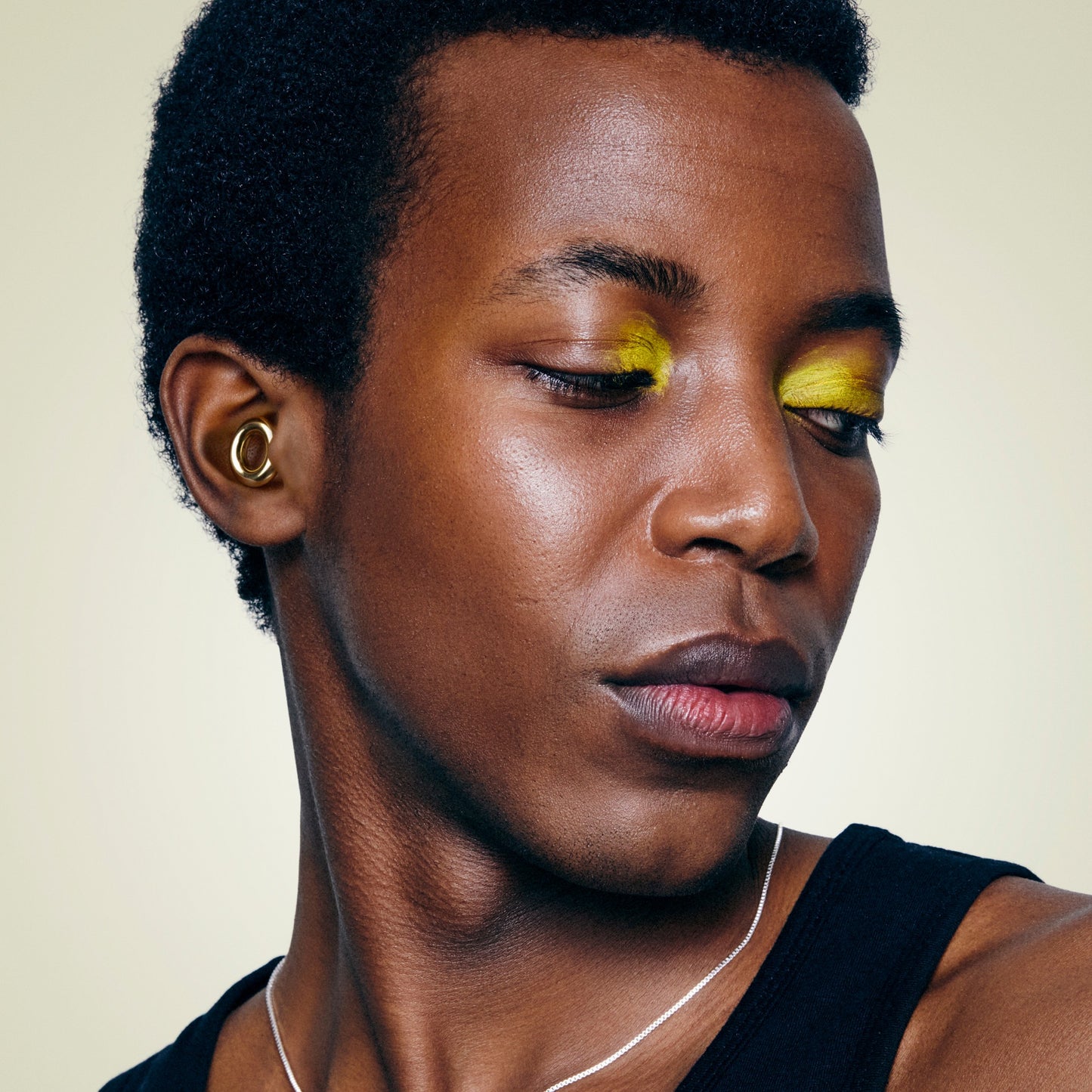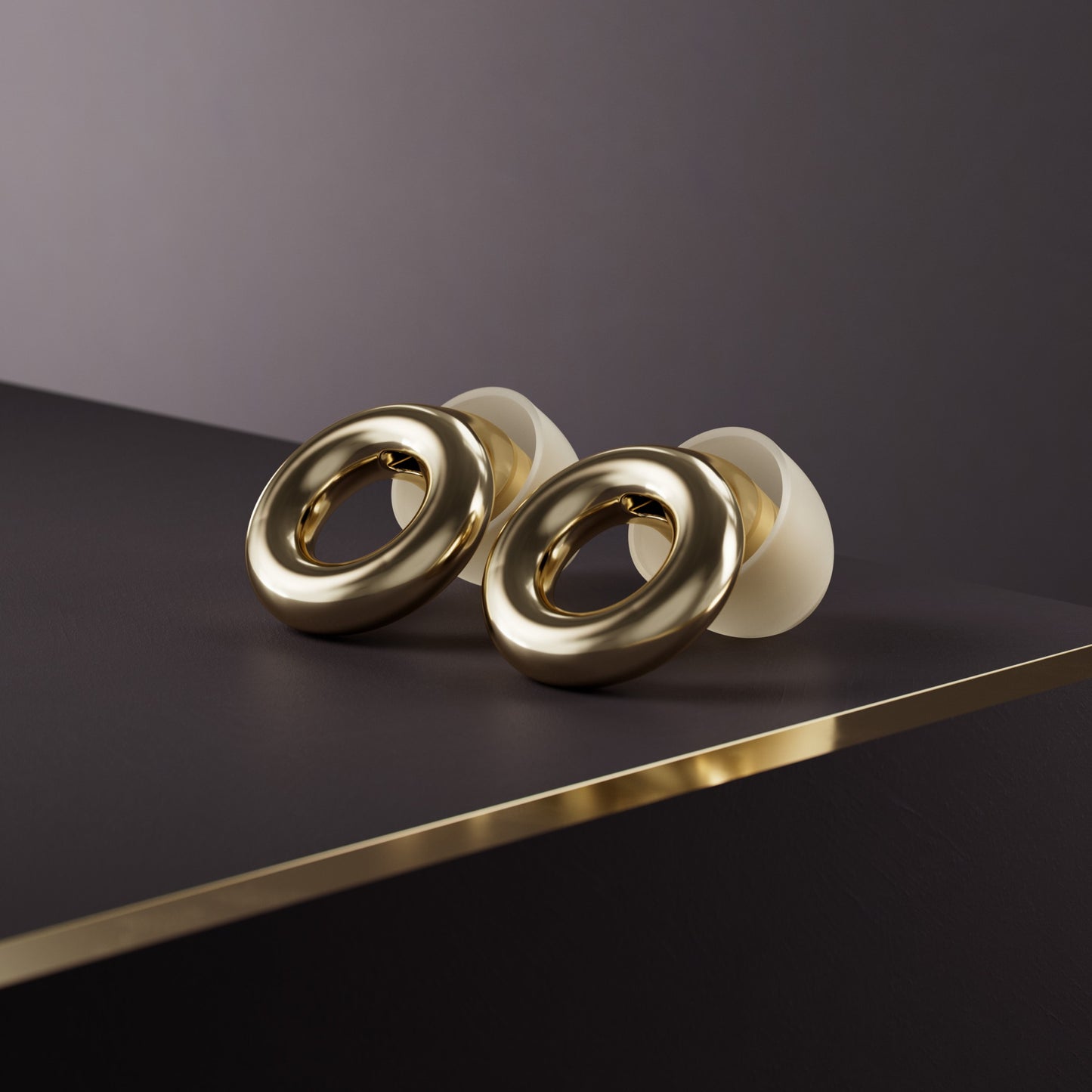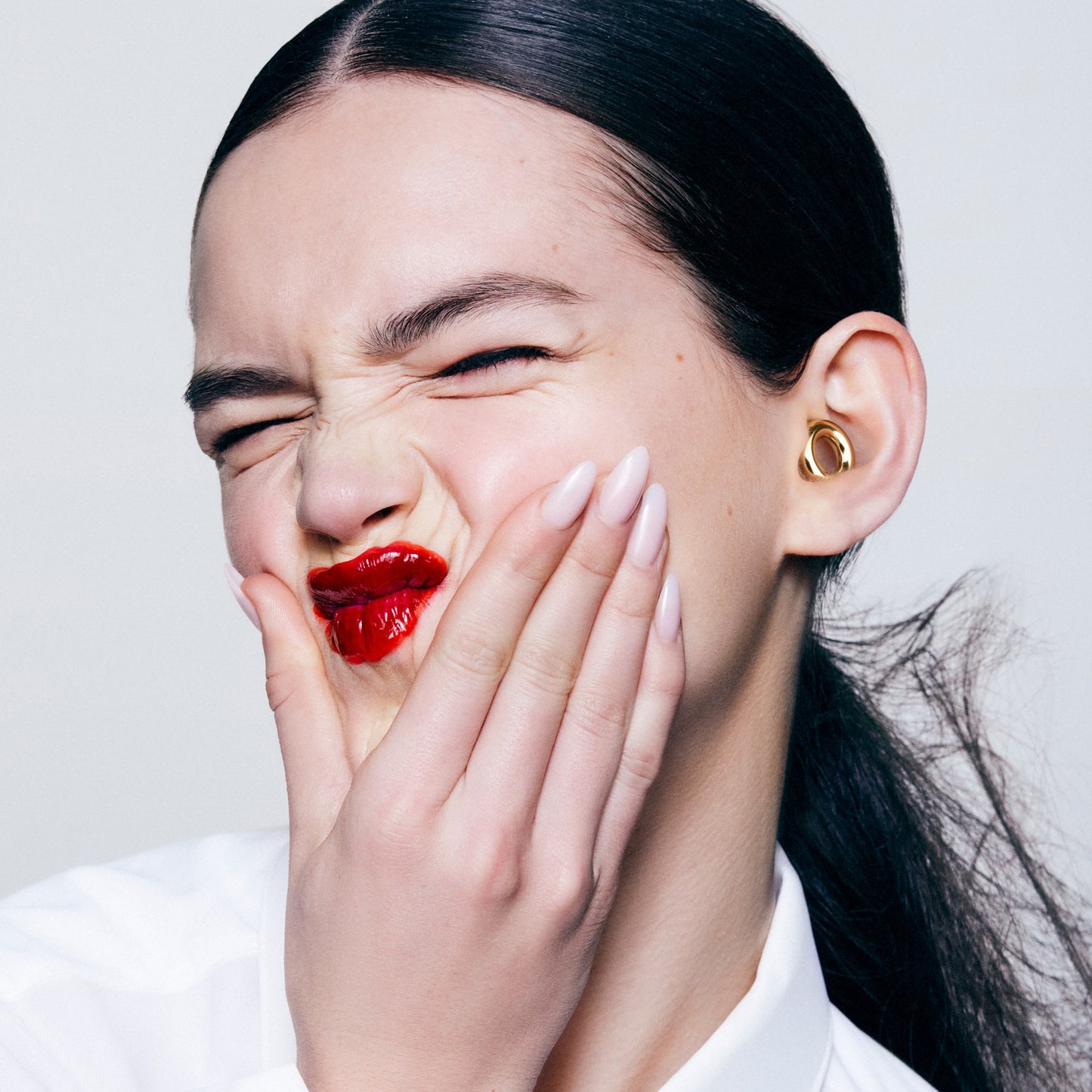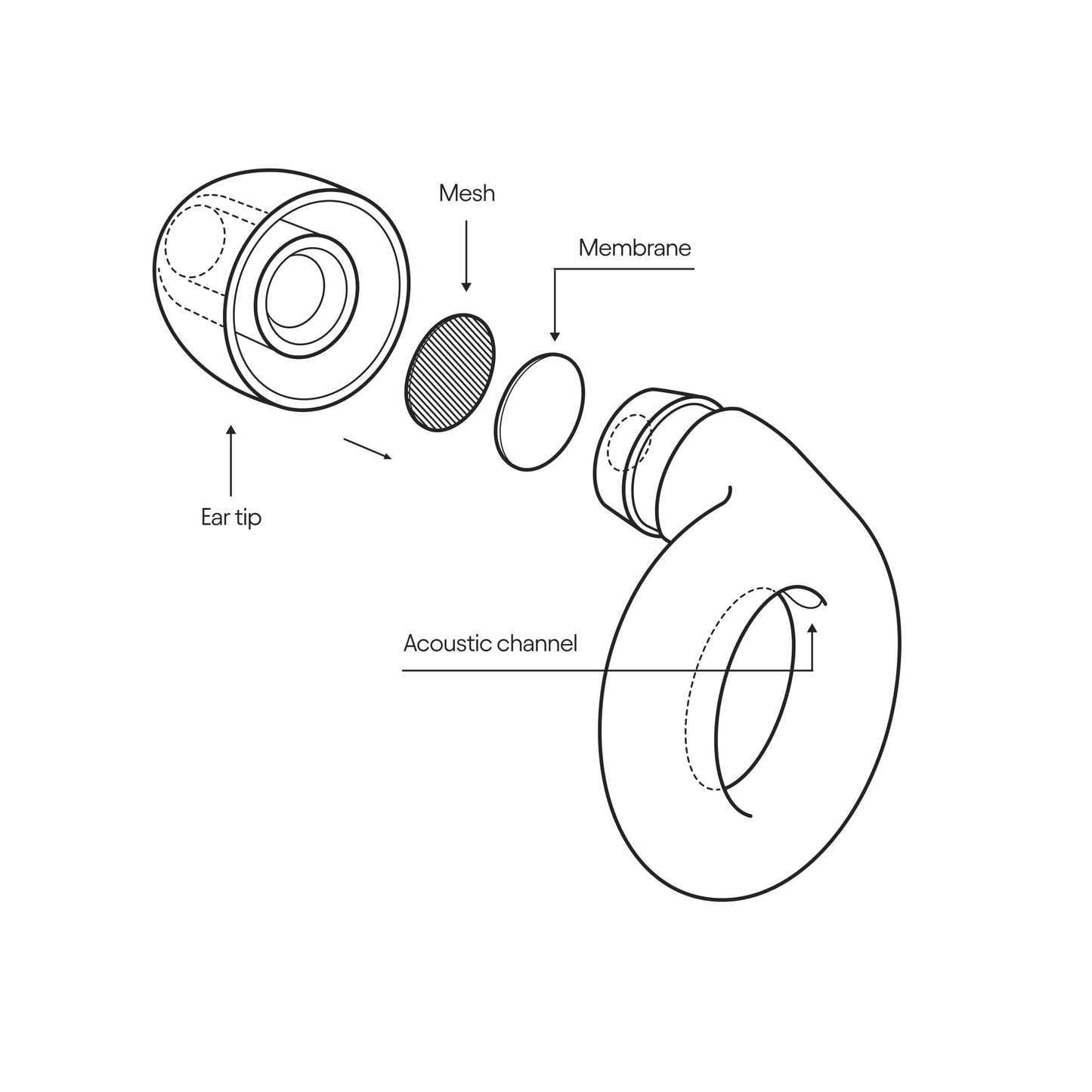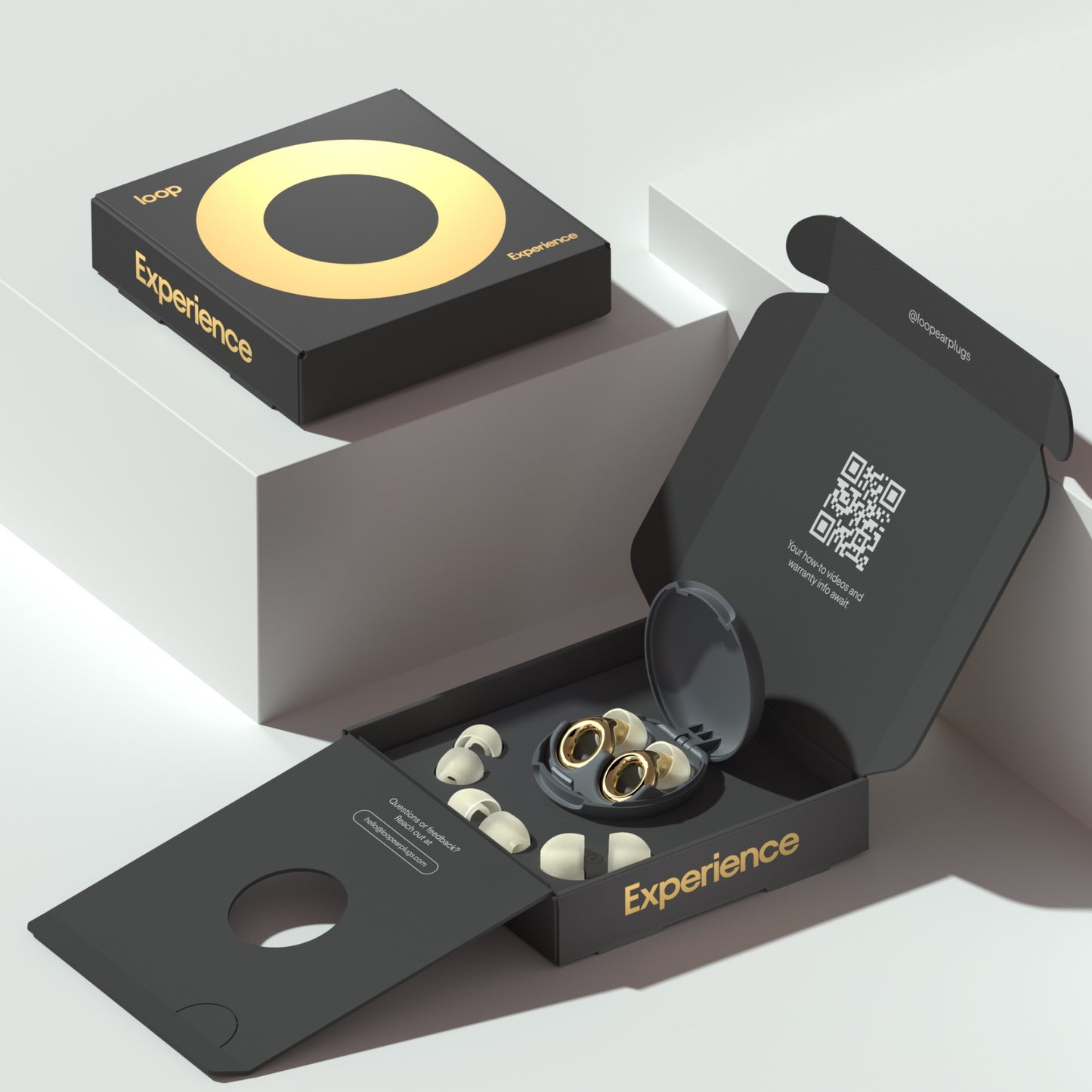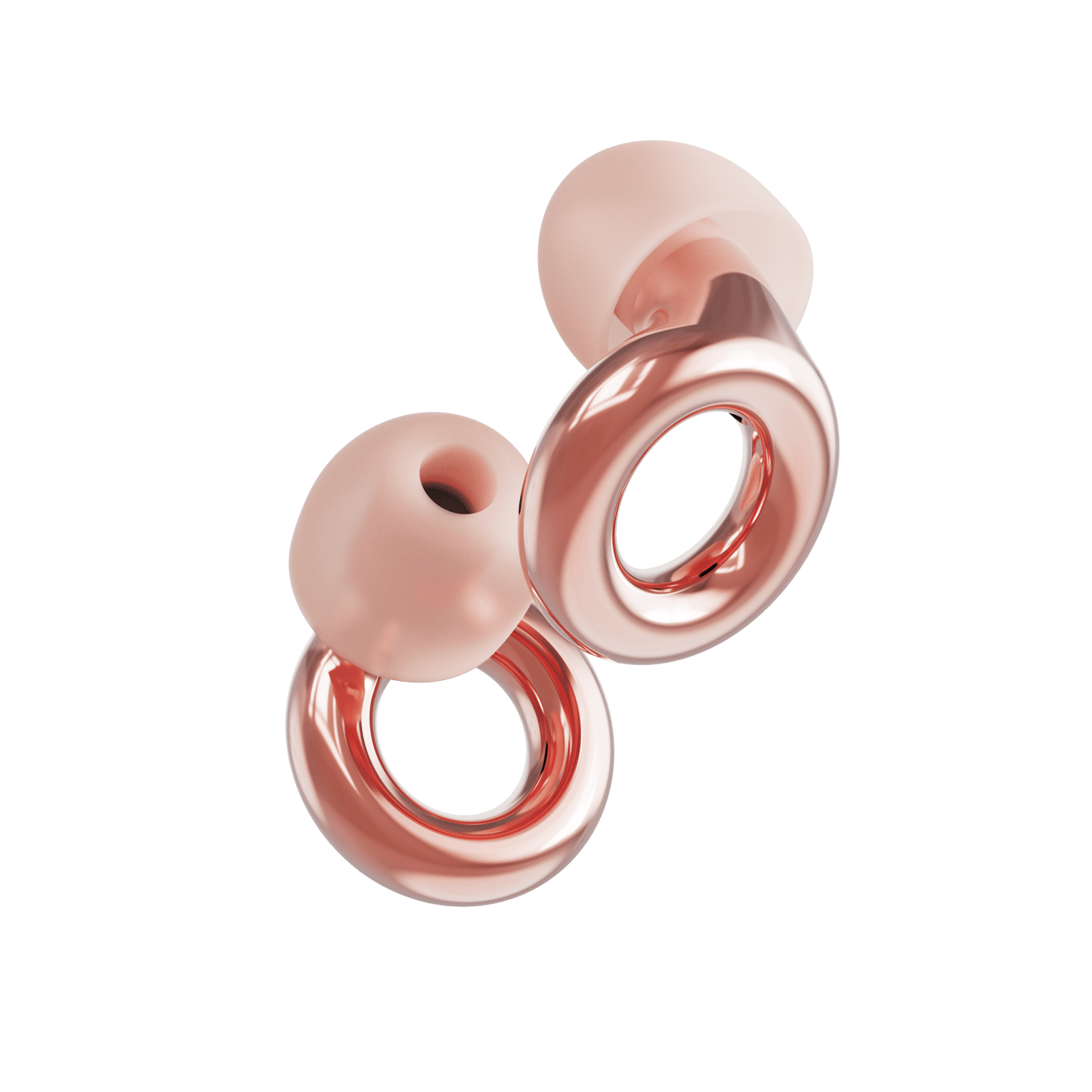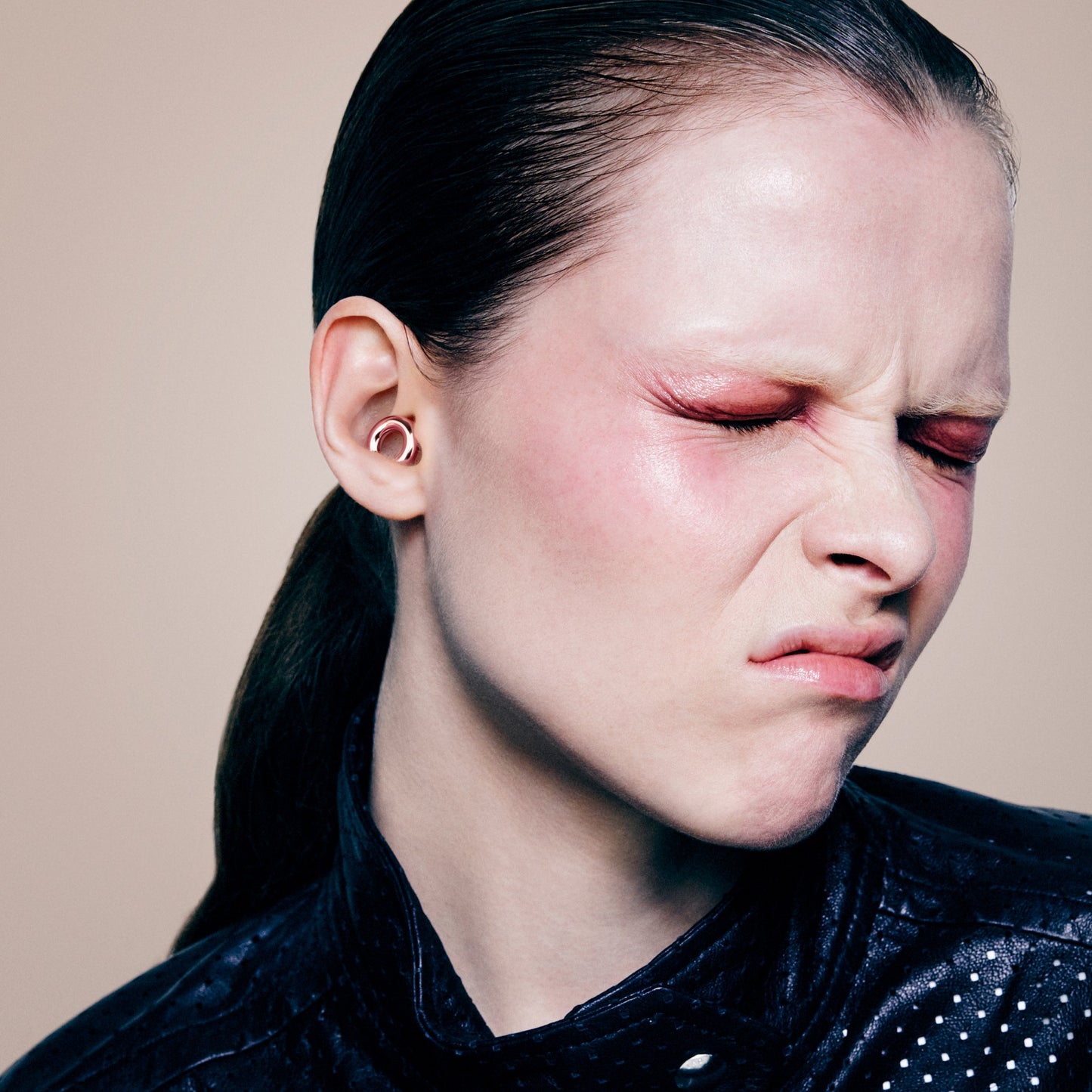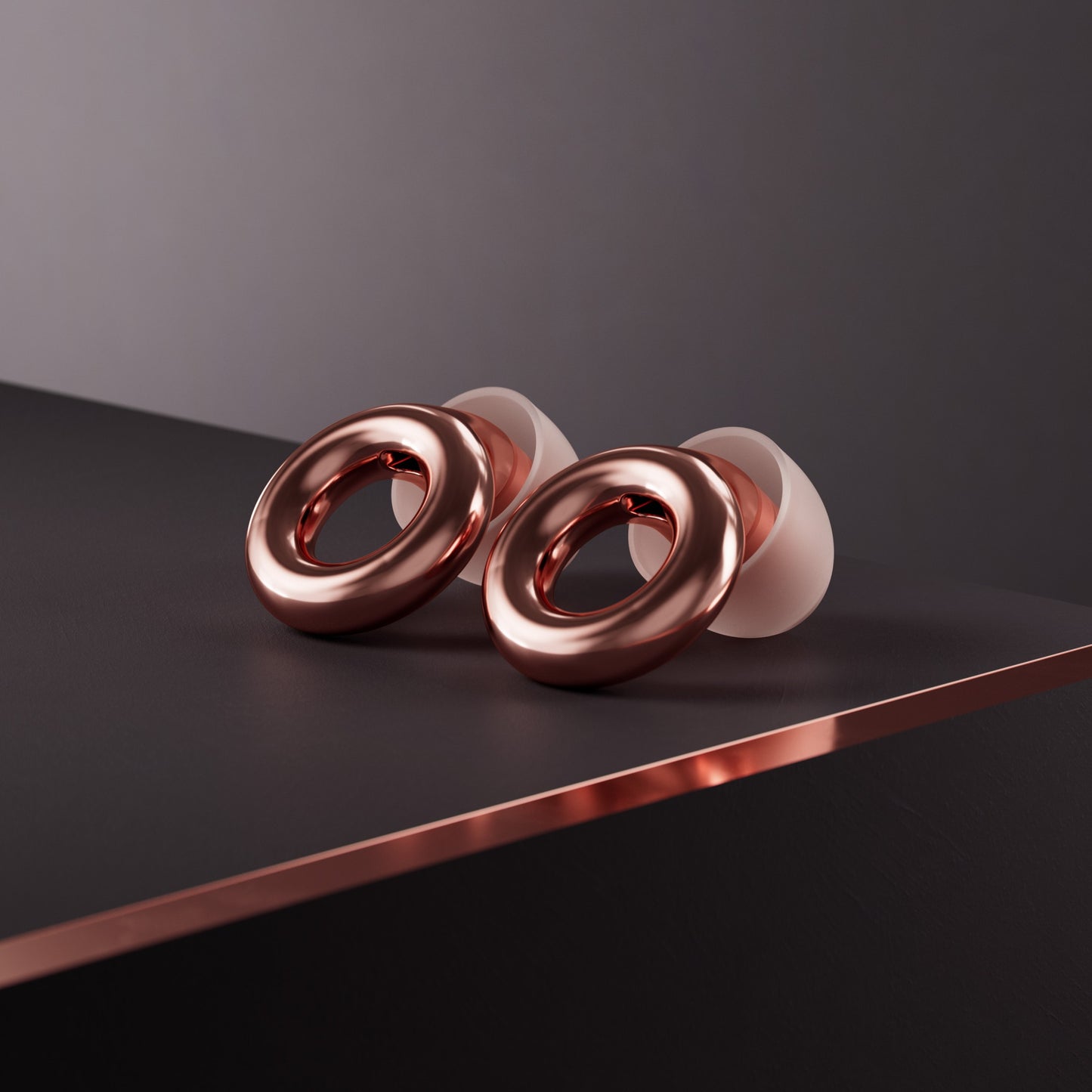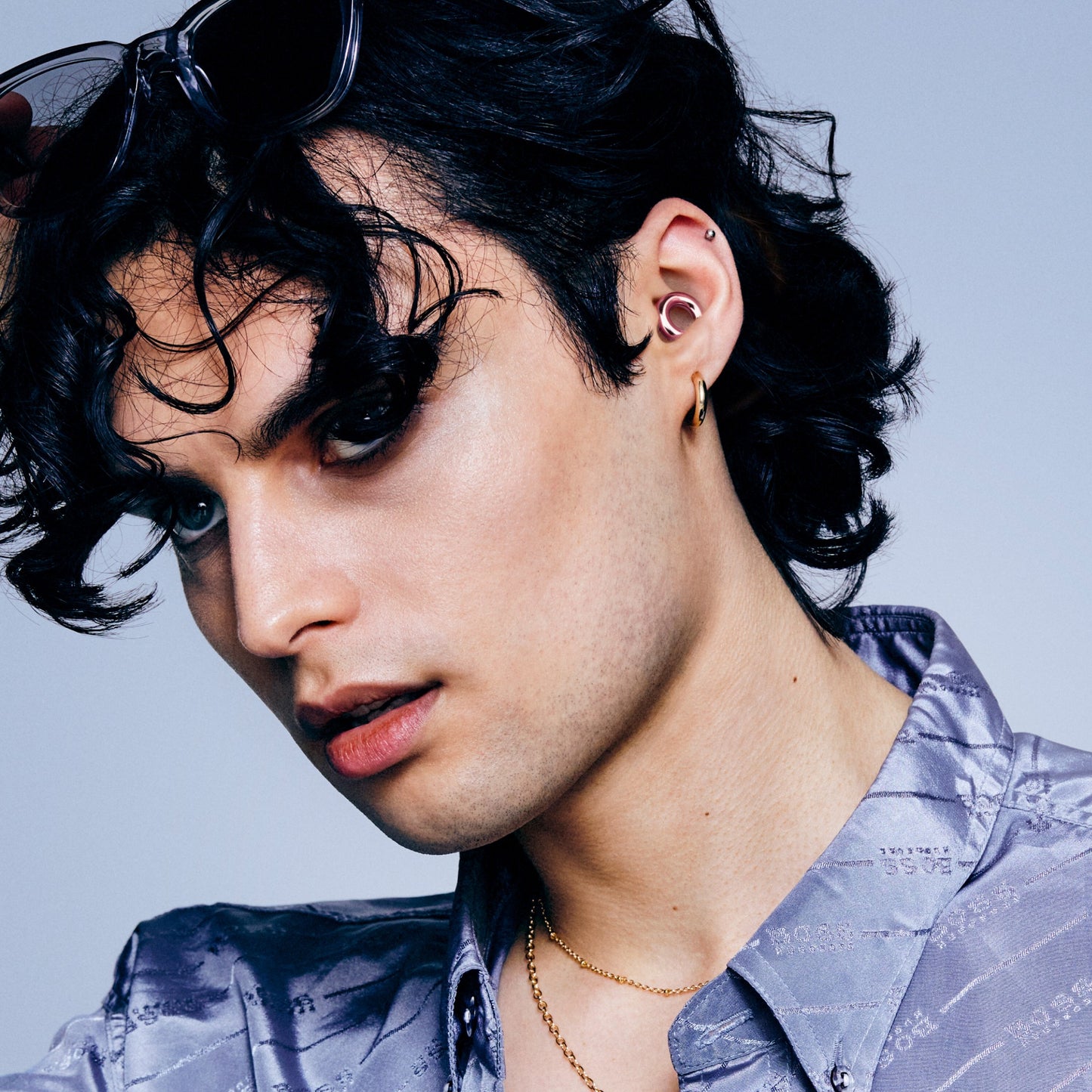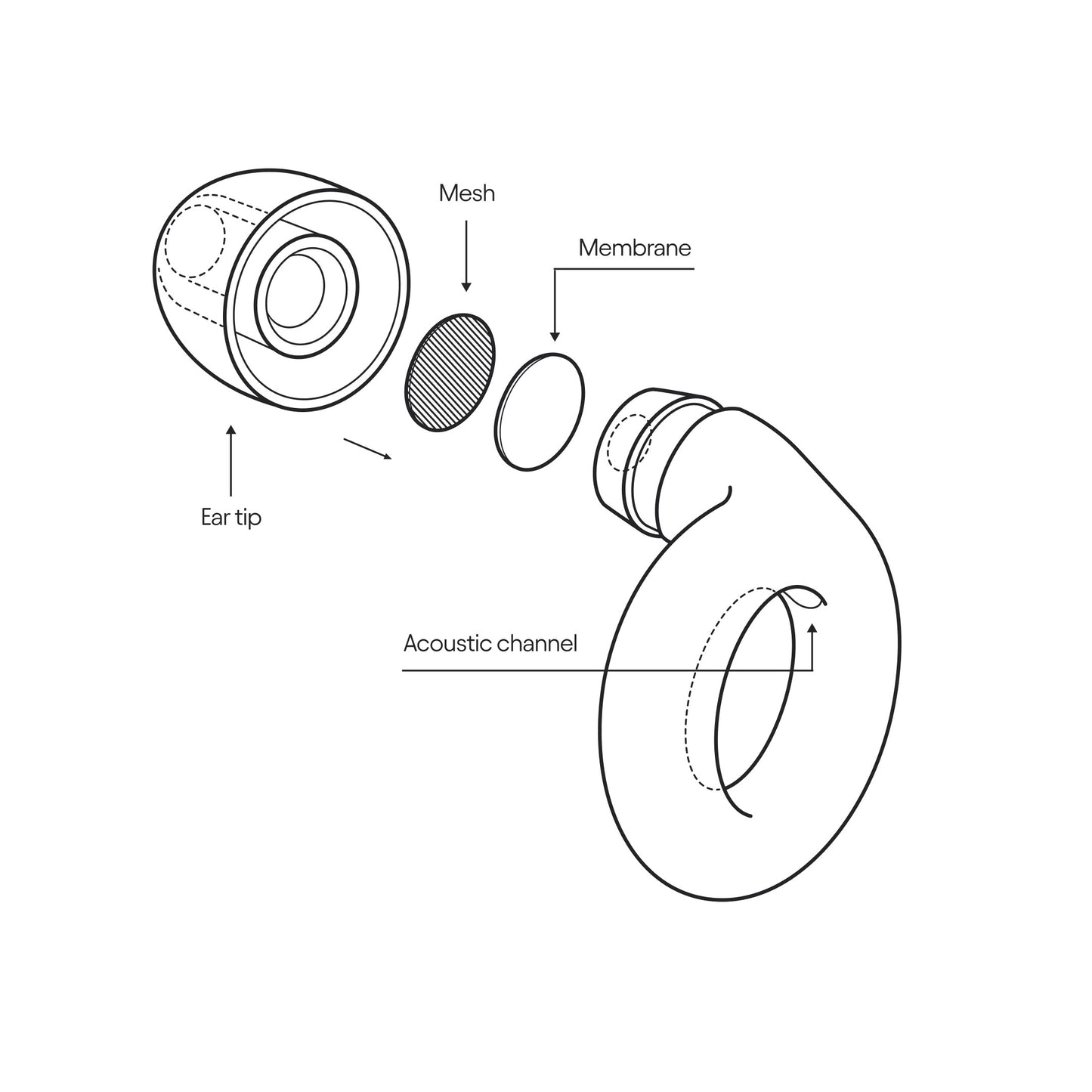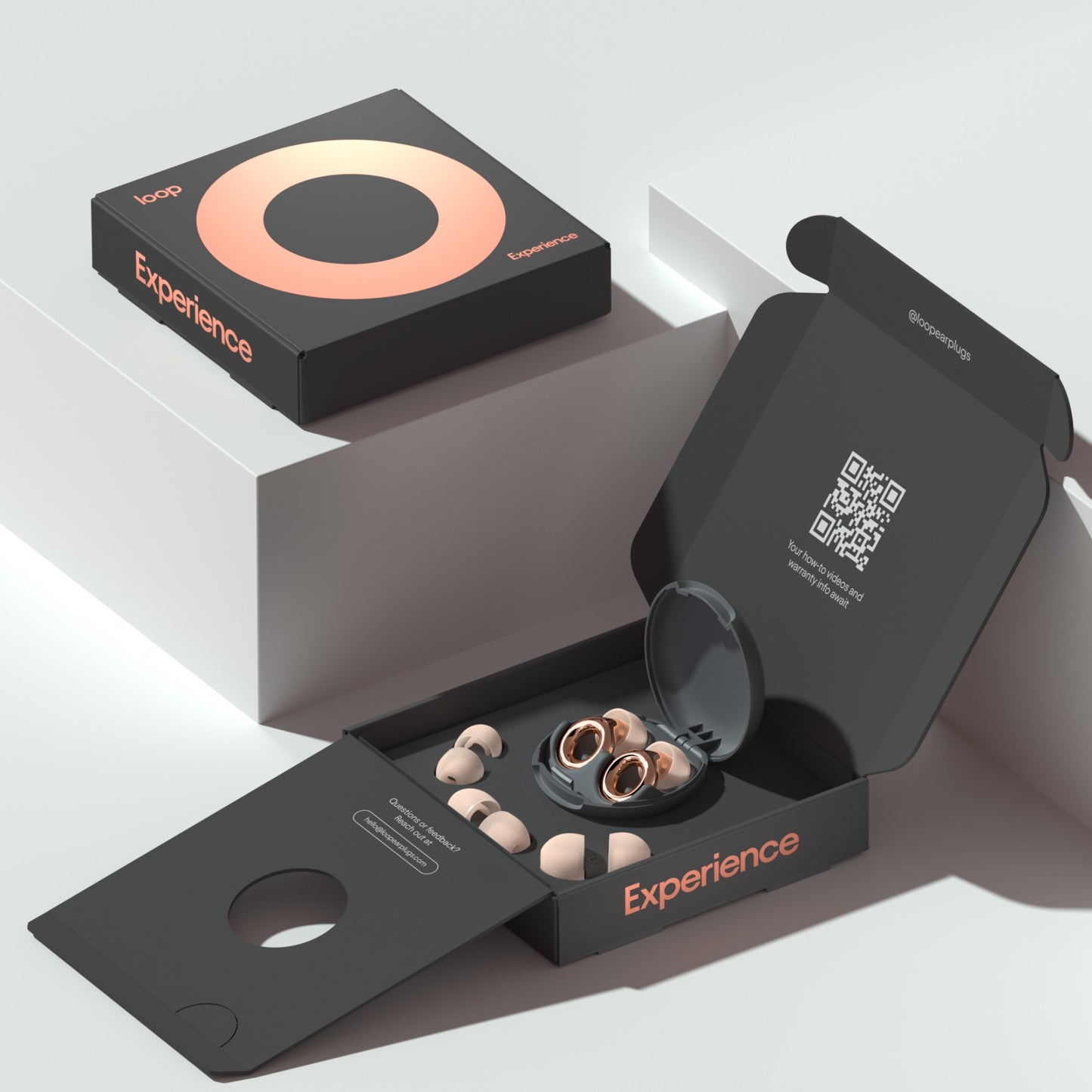If you’ve landed on this article, there’s a pretty good chance you’re hearing a ringing in your ears while reading this. No need to freak out right away. Almost every one of us has experienced ringing ears (also called tinnitus) at some point in their lives. Concerts and other music events are the number one cause.
Key takeaways
- Ringing in your ears is a common phenomenon after going to a concert.
- Any sound above 80 dB can cause long term damage to your hearing.
- There are ways you can stop the ringing in your ears like limiting exposure, white noise, exercise etc...
- Ideally you make sure you prevent damage to your hearing by using noise-reducing earplugs like Loop Experience.

What causes ringing in the ears?
When you’re exposed to loud music at a concert (or anywhere else), you risk damaging the tiny hairs of your inner ears. These hairs vibrate as a response to noise and send it to your brain, that translates it into sound. When damaged, these tiny hairs tend to send misinterpreted messages to your brain. Your brain will make up a sound to compensate the misinterpreted signal. This causes you to hear a ringing sound when there’s no actual sound present.
Any sound at or above 80 decibels (dB) could damage those tiny hairs, resulting in ringing ears. Concerts often peak at a decibel level of 100-105dB. Your ears can only cope with that level of sound for 15 minutes, without proper protection (like earplugs).
Did you know that there are three different kinds of tinnitus? And that it can manifest itself in three different tones? Read about them here.
Will my ringing ears stop?
An occasional concert can result in temporary tinnitus that usually goes away after a day or two. In extreme cases, it may take longer, up to a week or two. It all depends on the decibel level and time you were exposed.
If you’re a regular concertgoer, musician or already suffer from some form of hearing damage, it could be that you’d develop a form of ringing ears that last longer than six months. If that’s the case, it could be helpful to see a doctor or audiologist.
How do I stop my ringing ears?
There’s no proven medical cure for tinnitus. But there are ways to ease your ringing ears:
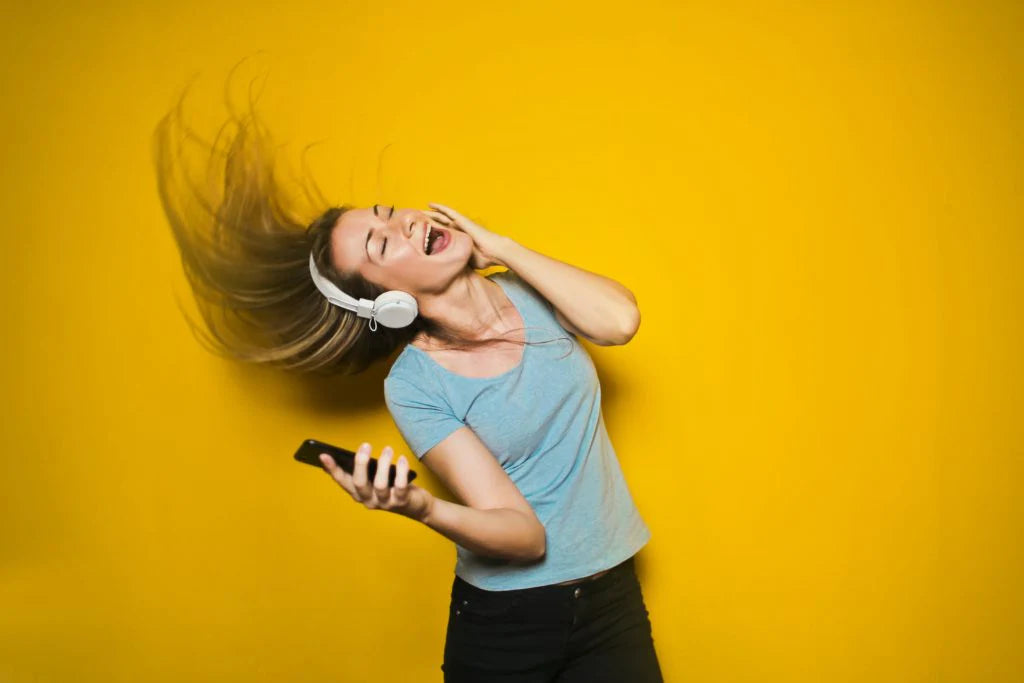
1. Limit exposure to loud noise/music
The first tip is an obvious one. Give your ears some rest by limiting the sound of your surroundings. Lower the sound of your television, headphones and especially of your in-ears or earbuds.
If possible, try to avoid loud places like concerts, clubs or bars.

2. Distraction
Try to limit exposure to loud noise but don’t cut it off completely. Background noise will distract you from the ringing in your ears. Soft music or your favorite movie could be a great way to relax.
Another thing you could try to reduce any stress that comes along with your ringing ears is meditation or yoga. You can easily do this at home with these tips.
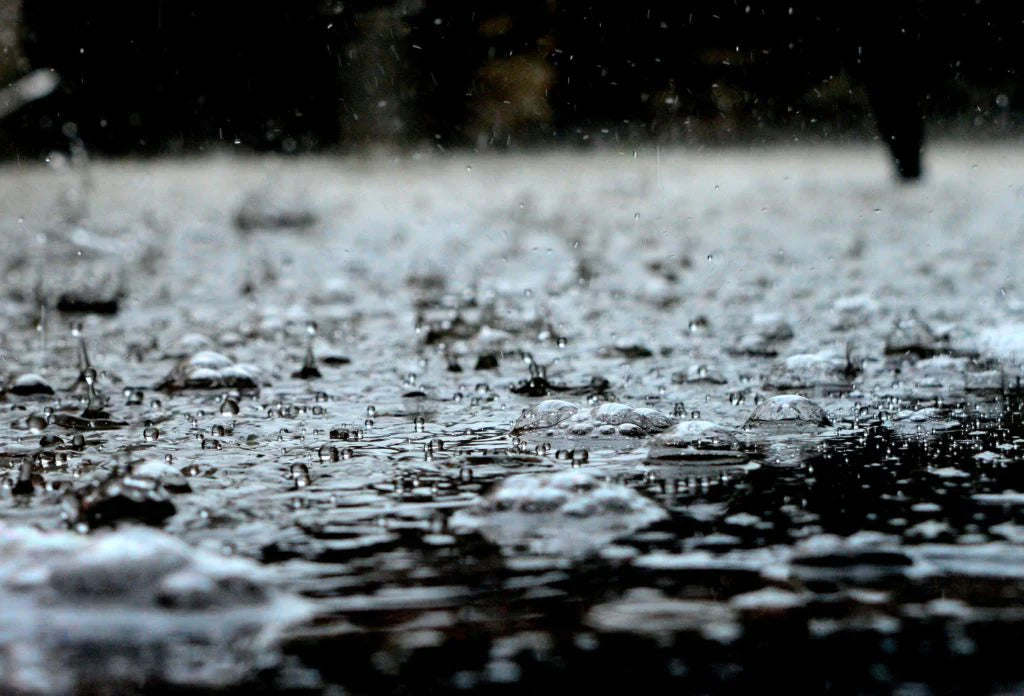
3. White Noise
There’s often enough going on during the day to distract yourself from your ringing ears. But when you’re lying in bed it may be hard to fall asleep. If the ringing prohibits you from sleeping, try putting on white noise.
This Spotify-playlist may just be what you need.
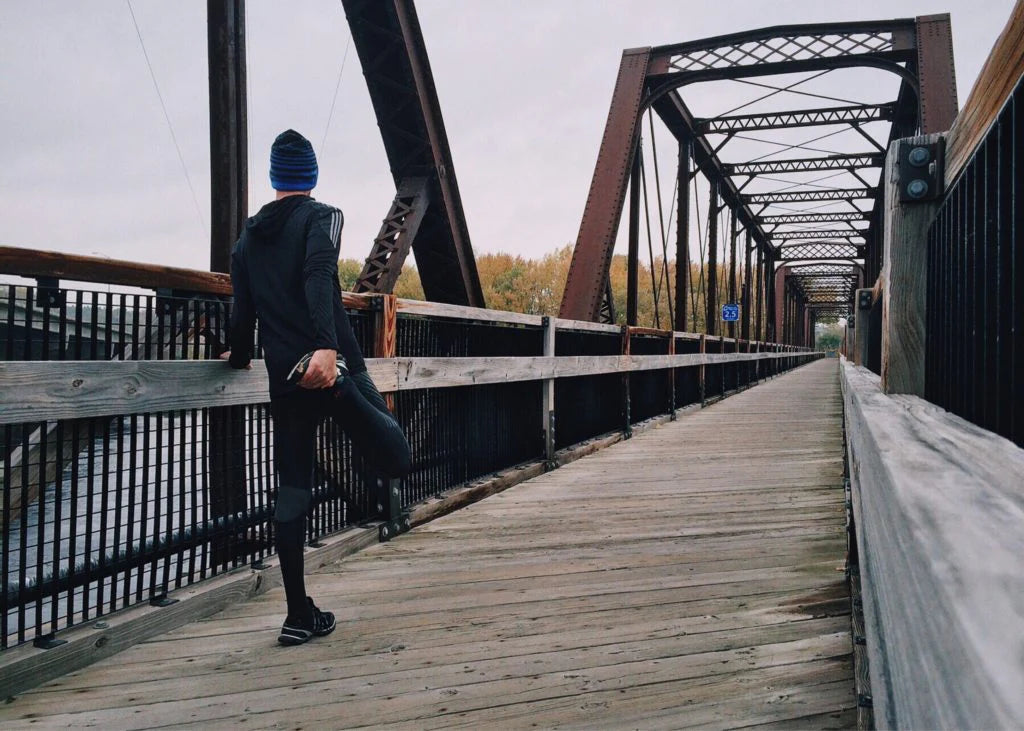
4. Exercise
It’s no secret that exercise is great for your body and mind. It’s healthy, helps to release stress and it’s a great distraction! Some exercises will benefit your tinnitus, others will worsen it.
Exercises to avoid involve a lot of jarring movements or jumping. Try to avoid running, rope skipping, aerobics, soccer, basketball, …
Low impact exercises like yoga or pilates will have the opposite effect and could help soften your tinnitus.

5. Avoid possible triggers
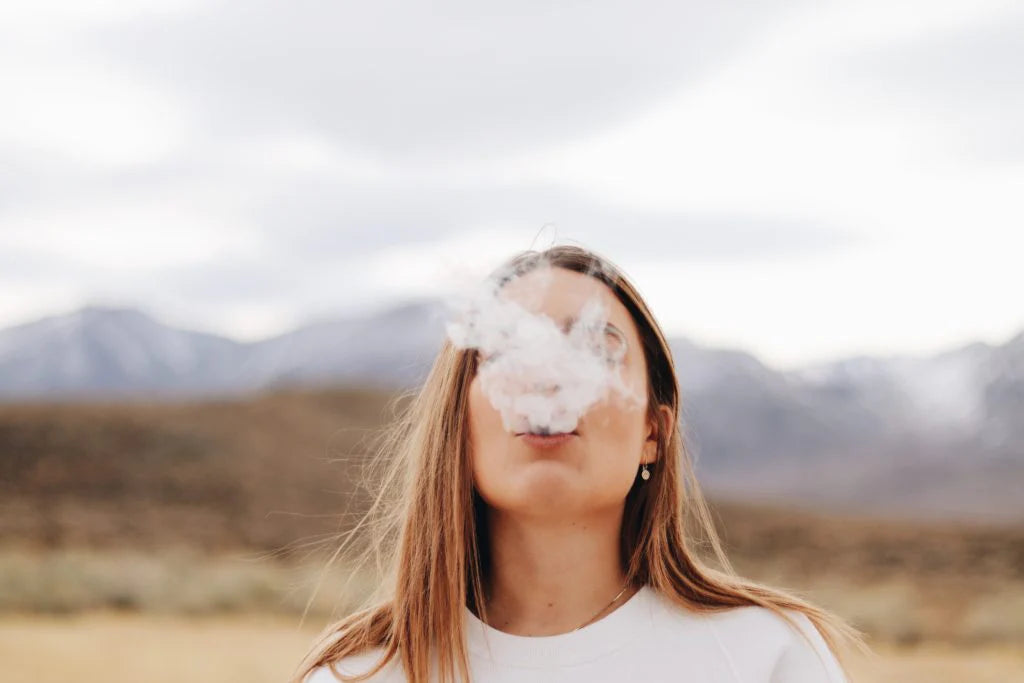
6. Quit smoking (if you do)
Knowing that ringing ears are a result of a malfunction in your brain, it should come as no surprise that smoking can make it worse. Cigarettes act as a stimulant to your body and mind and harm your blood flow to sensitive nerve cells in your brain. This could cause your ears to ring even louder than they already do.
Loop Earplugs
Experience
Share
How to prevent your ears from ringing after the next concert?

While the tips above may help you – and we really hope they do. It’s not guaranteed the damage will completely disappear. The best thing to stop your ears from ringing is to prevent it from happening again. A good set of earplugs is all you need to do that.
But what makes an earplug ‘great’? There is not just one secret feature for a great earplug, it all depends on what you’ll be using them for. We’ve listed the top features of the most popular events where you should be protecting your ears.
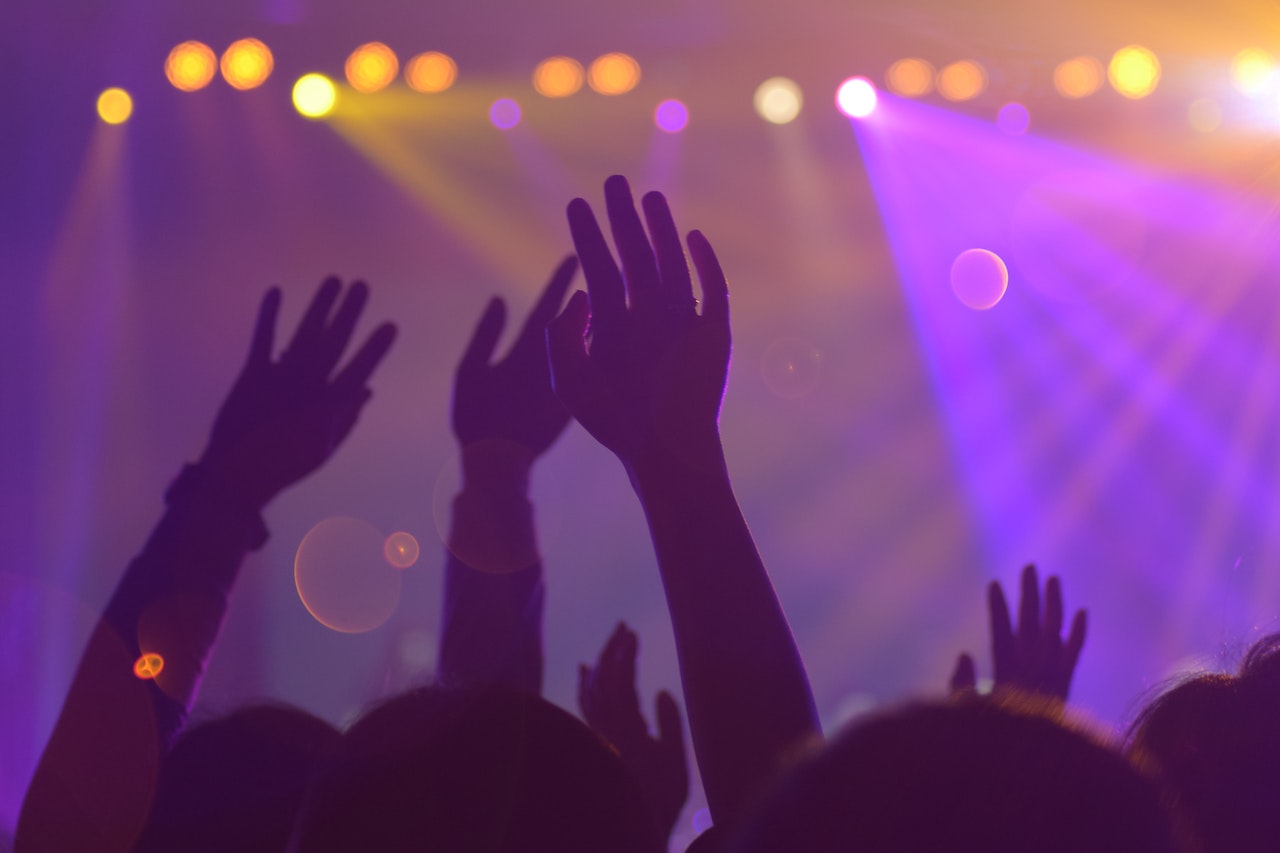
How to stop the ringing in your ears after clubbing
If you're looking for a way to prevent your ears from ringing after clubbing, read our tips on how to prevent this an...
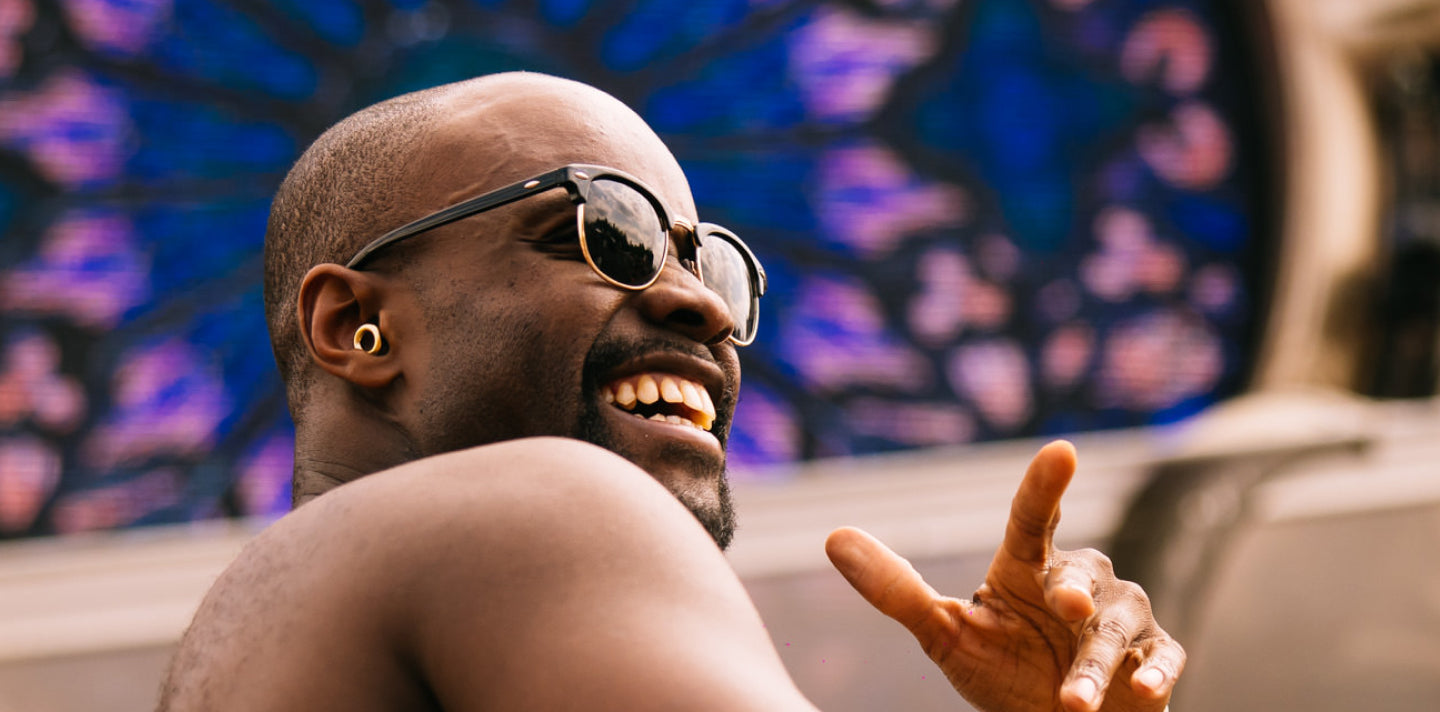
Concert ready: Tips for first-time concertgoers
Get ready for an unforgettable experience! Learn valuable tips and tricks for first-time concert goers to make the mo...

Managing tinnitus? These apps can help it buzz off.
Explore the best-reviewed tinnitus apps to find relief and enhance your quality of life with expert insights.














